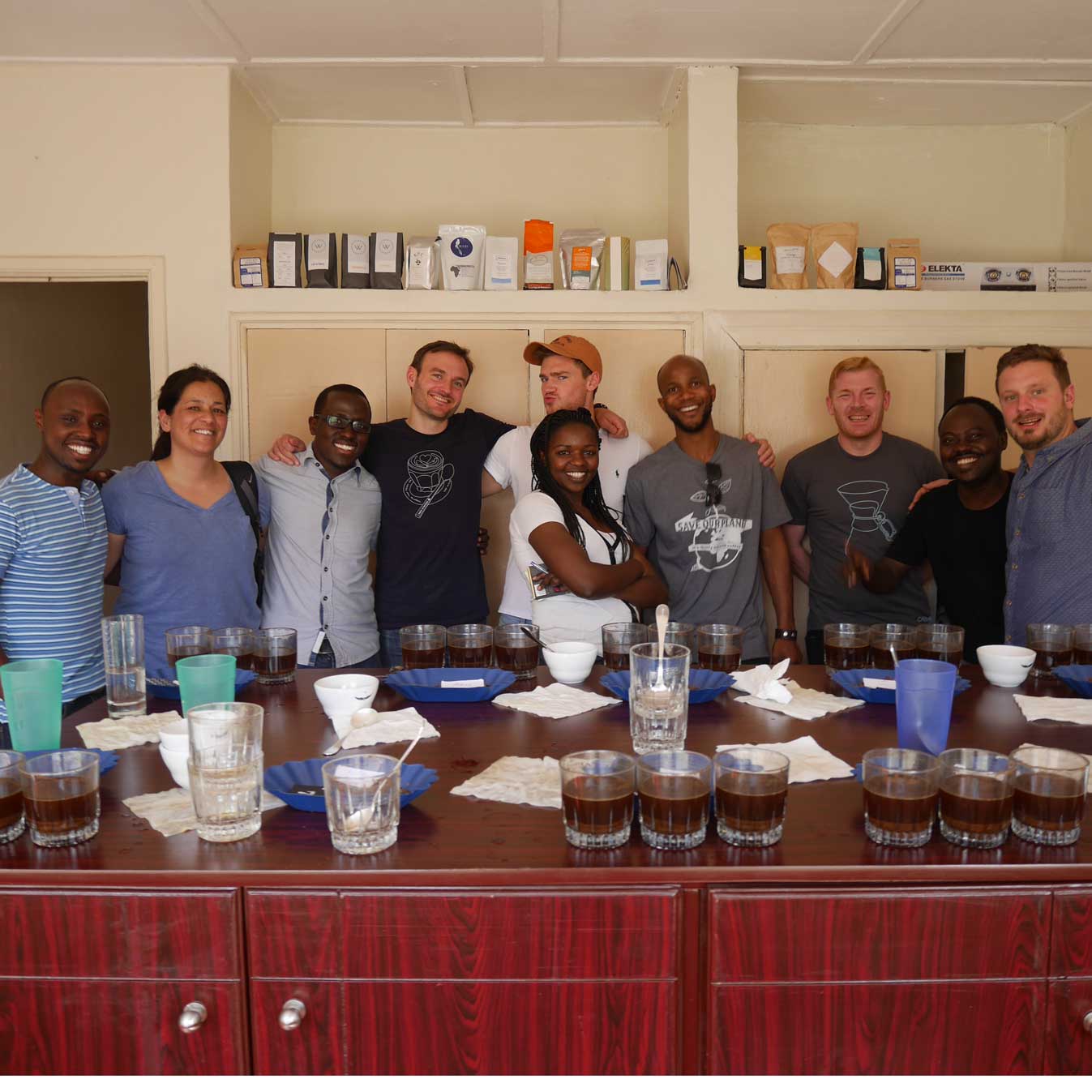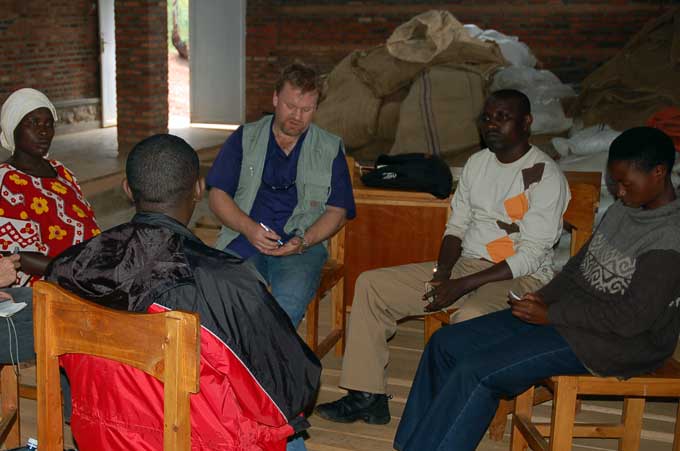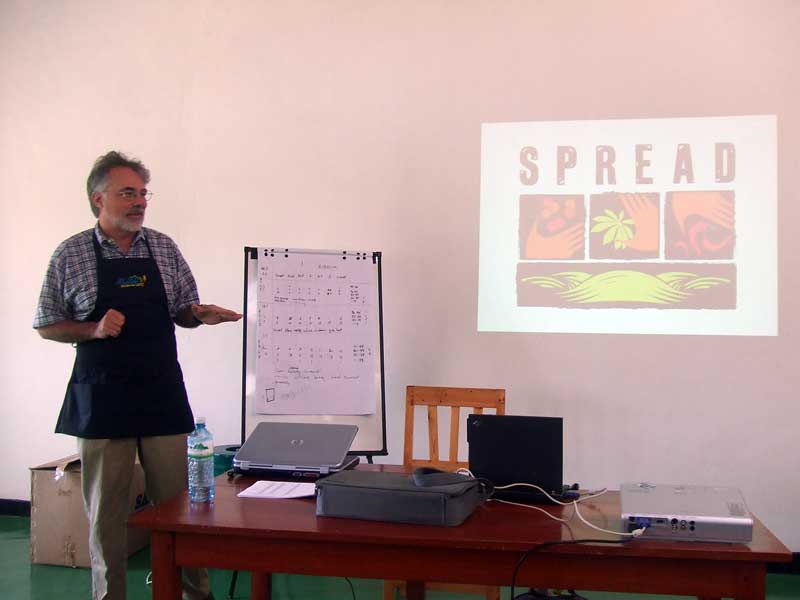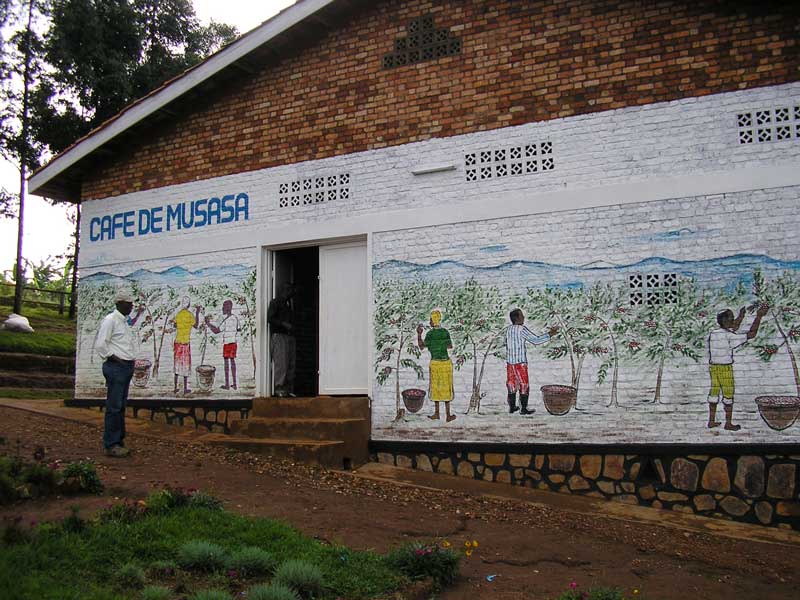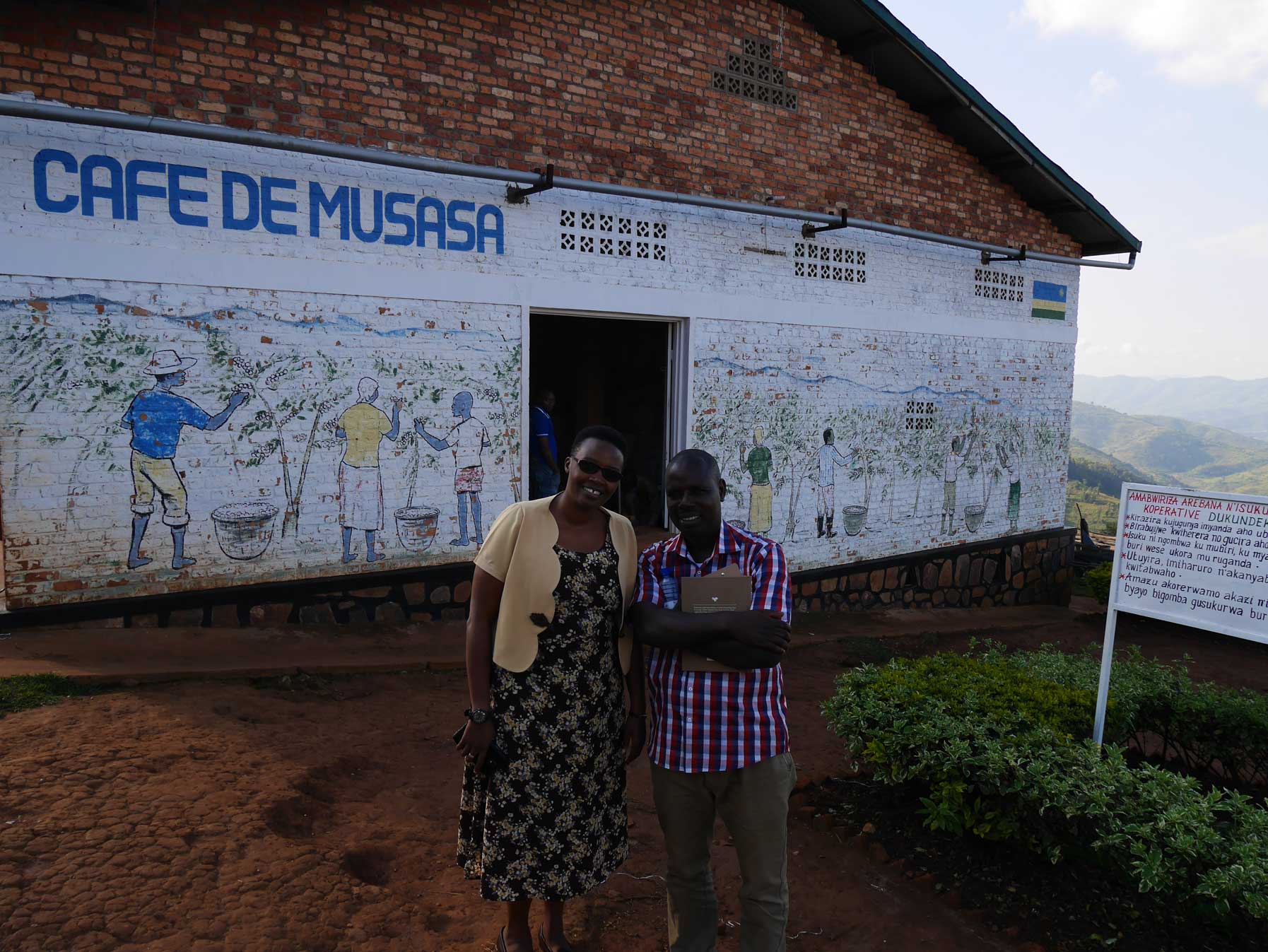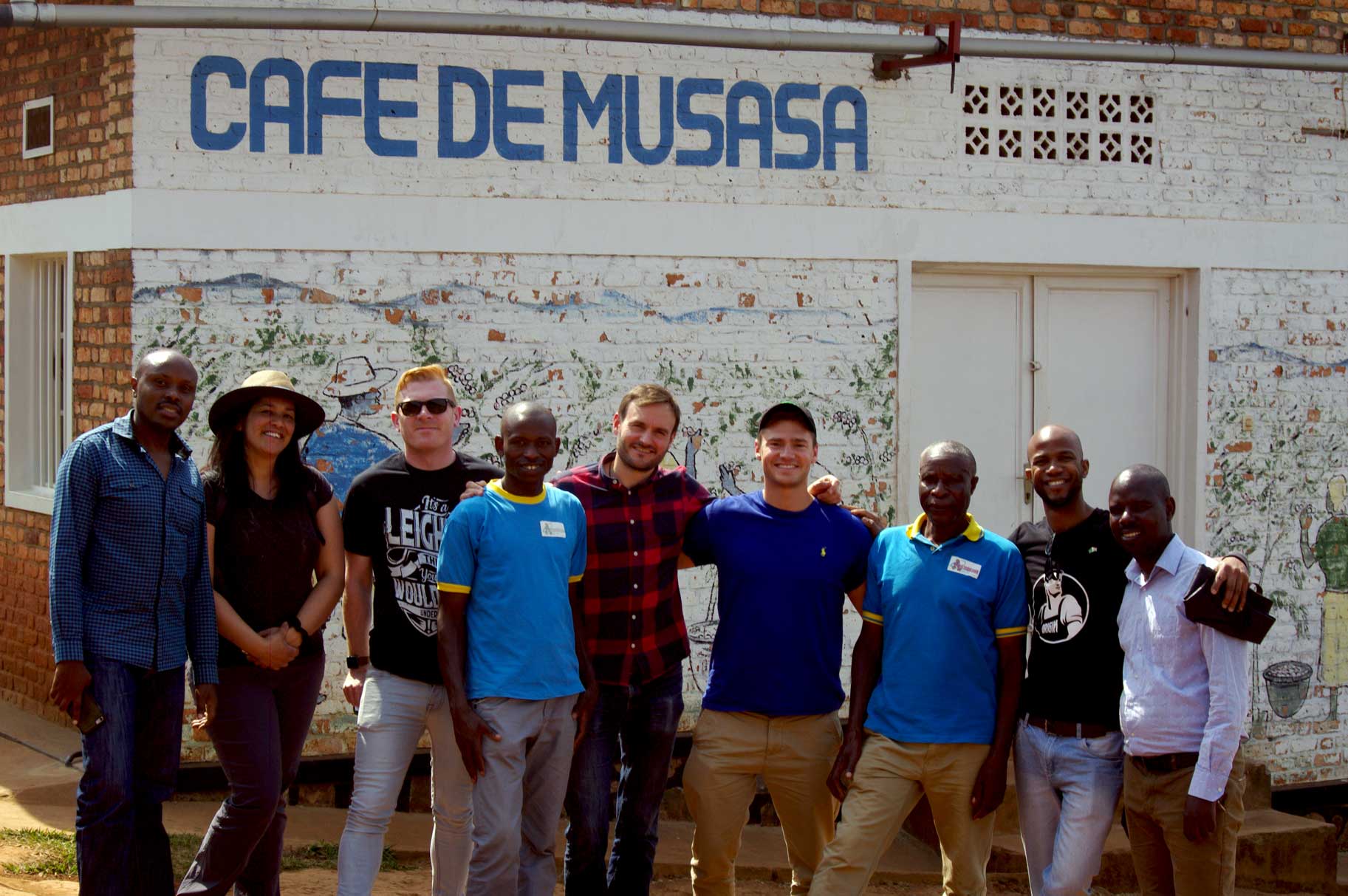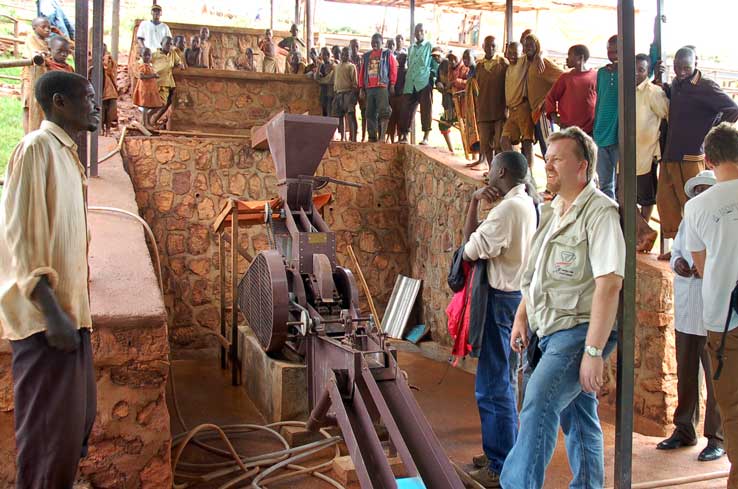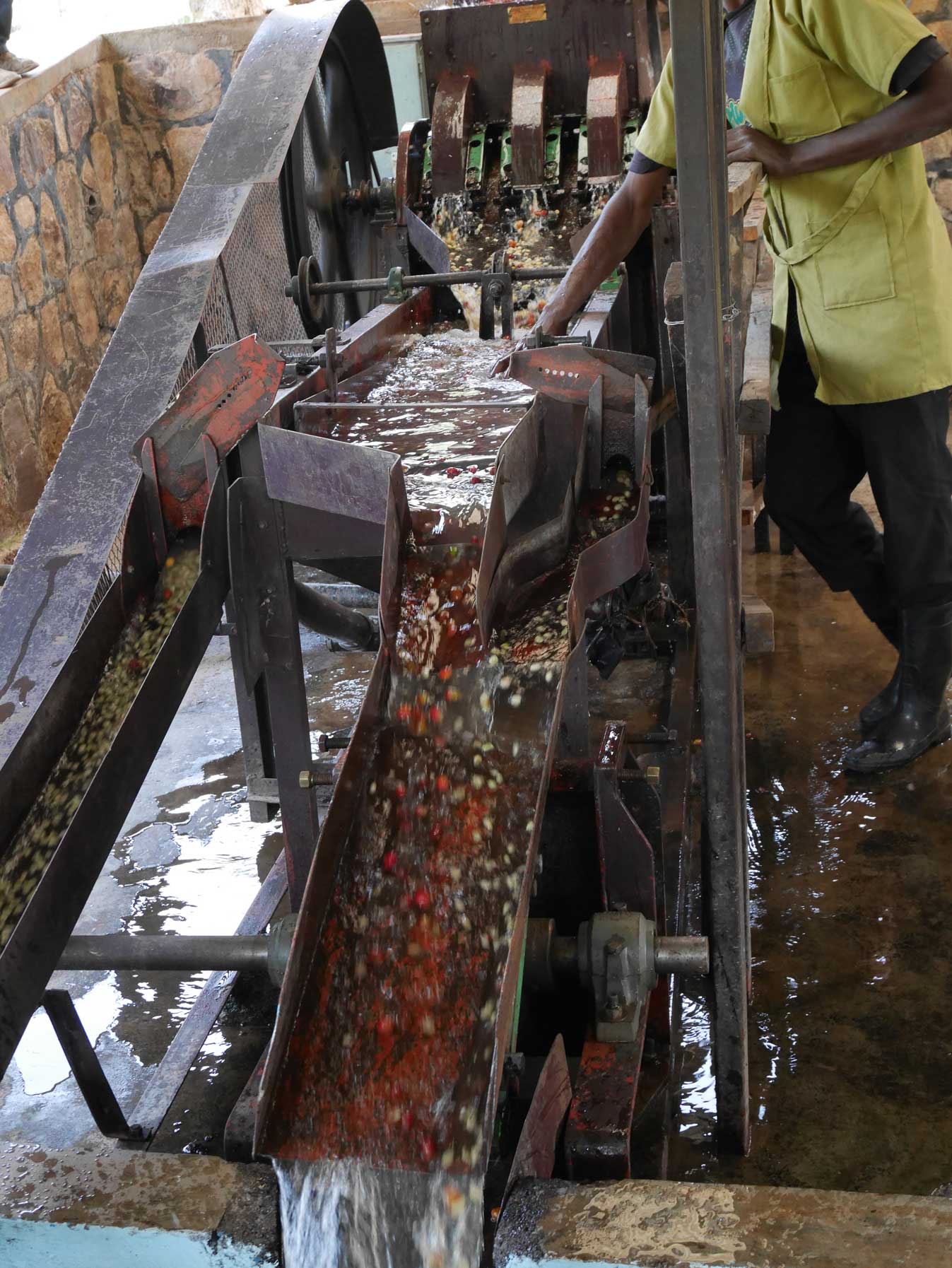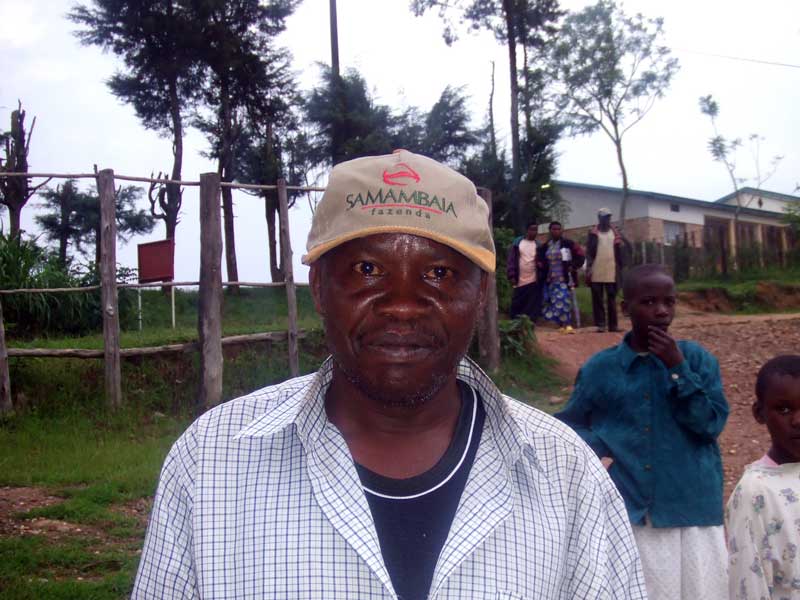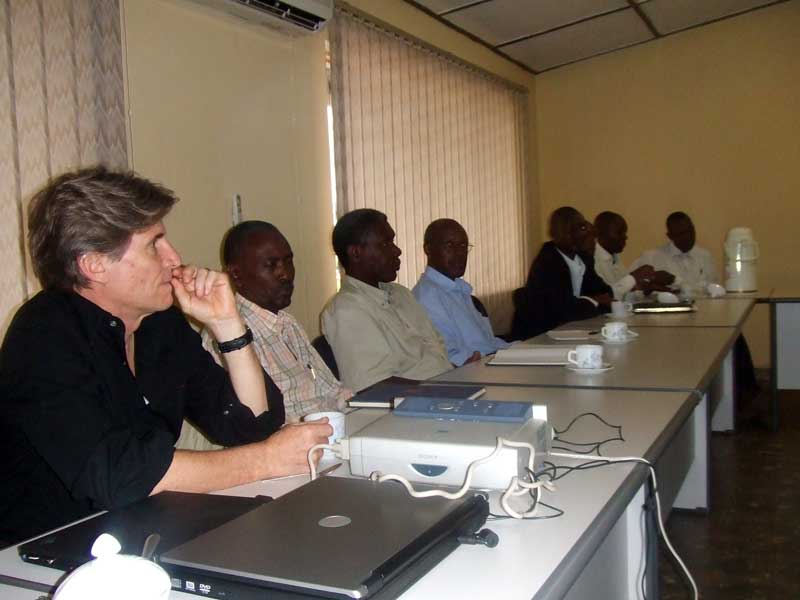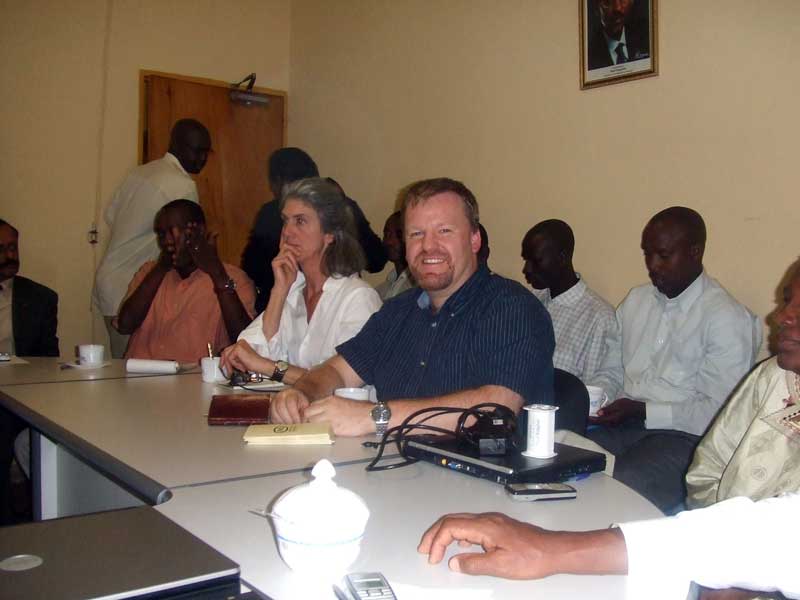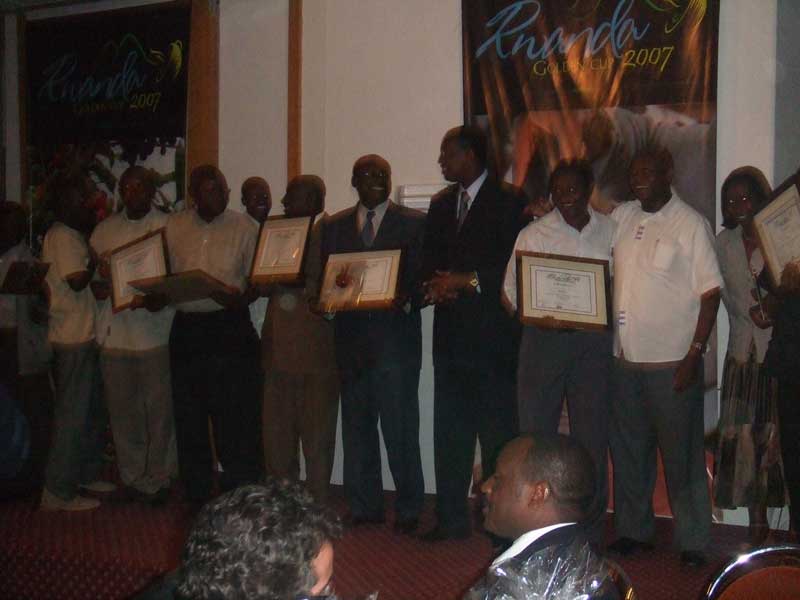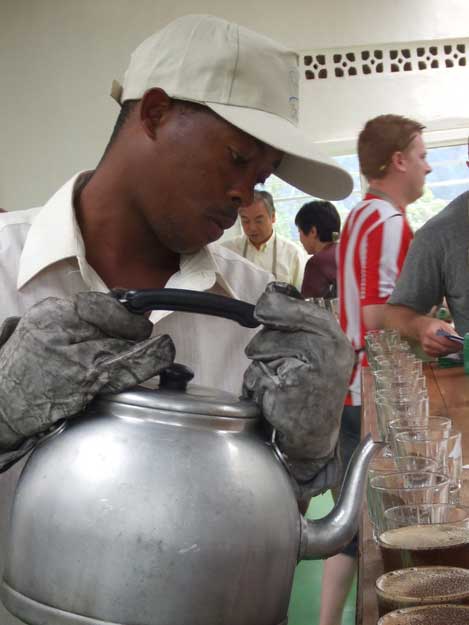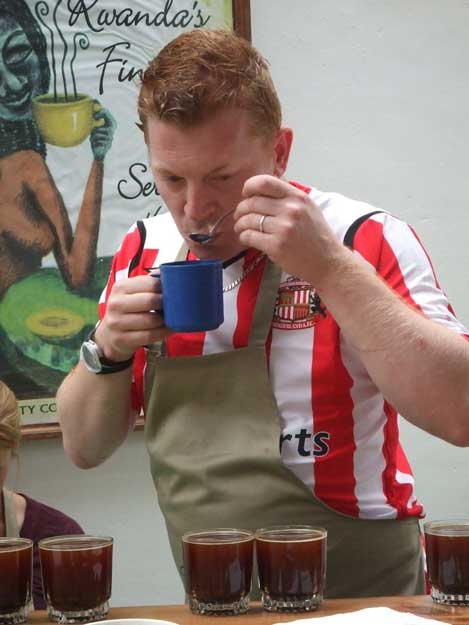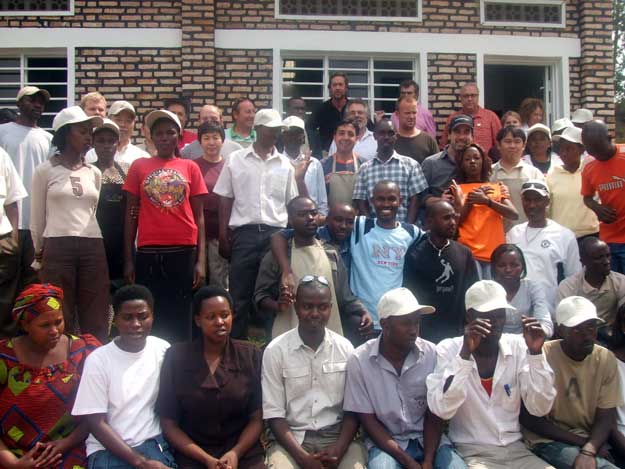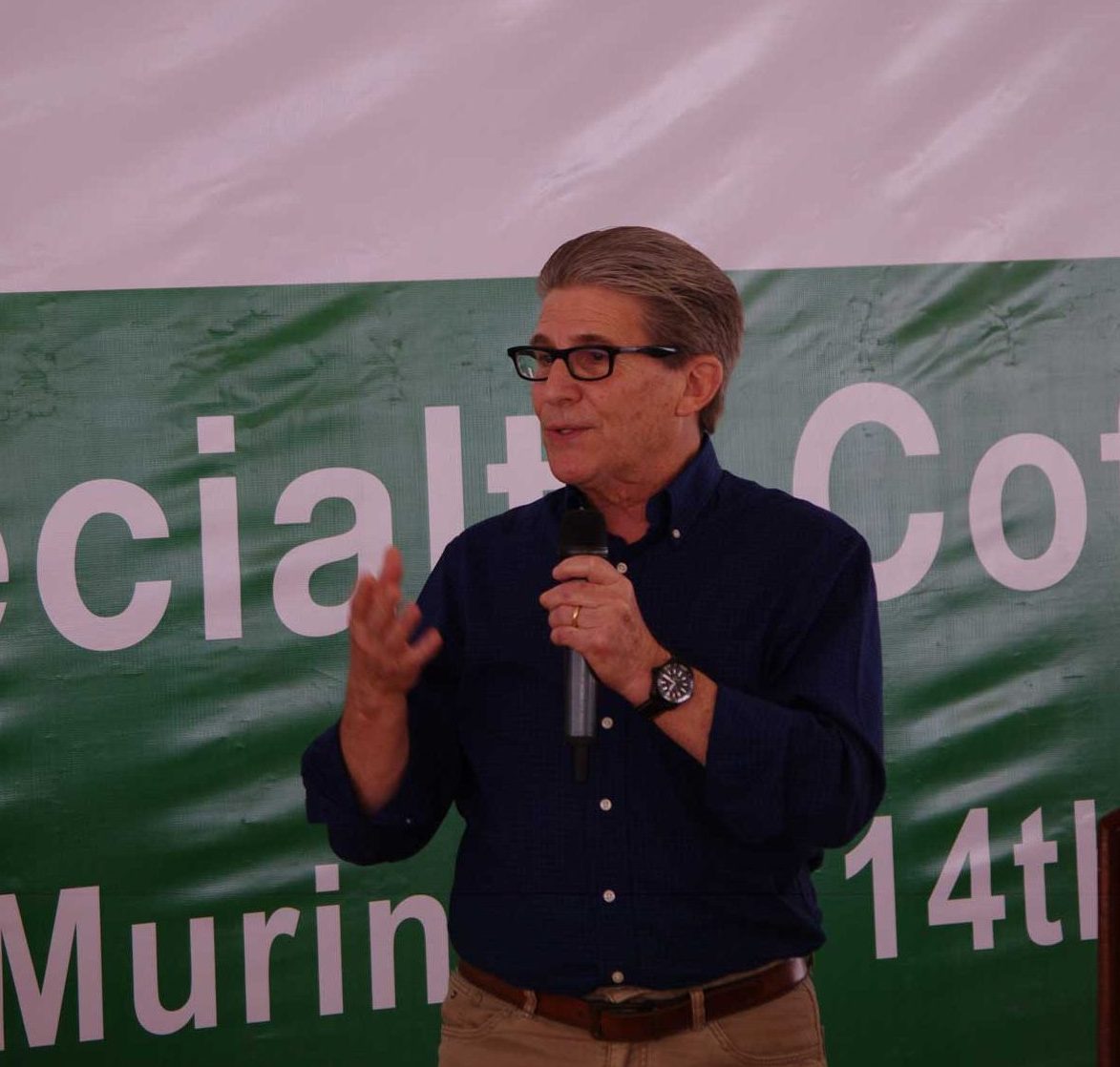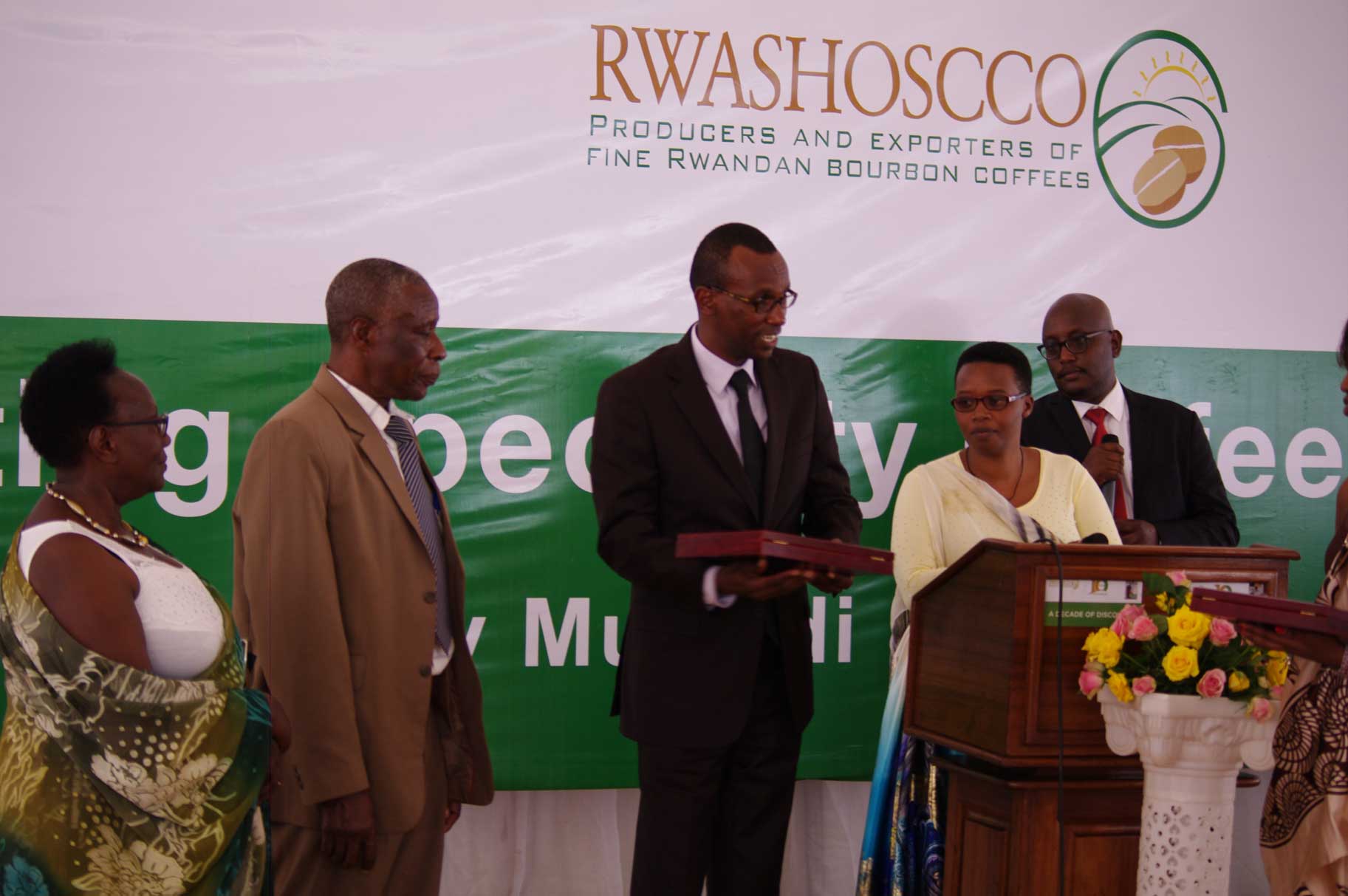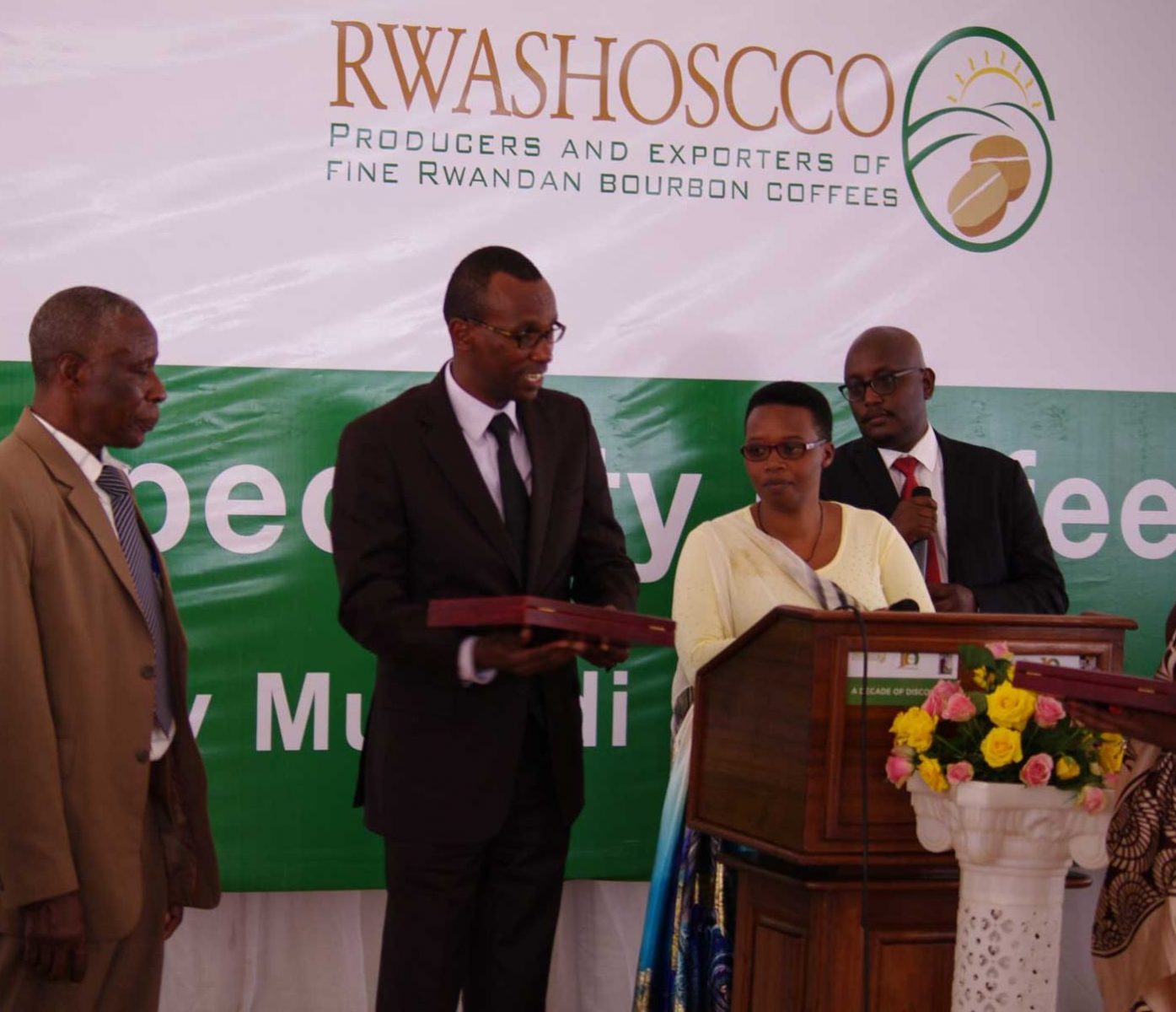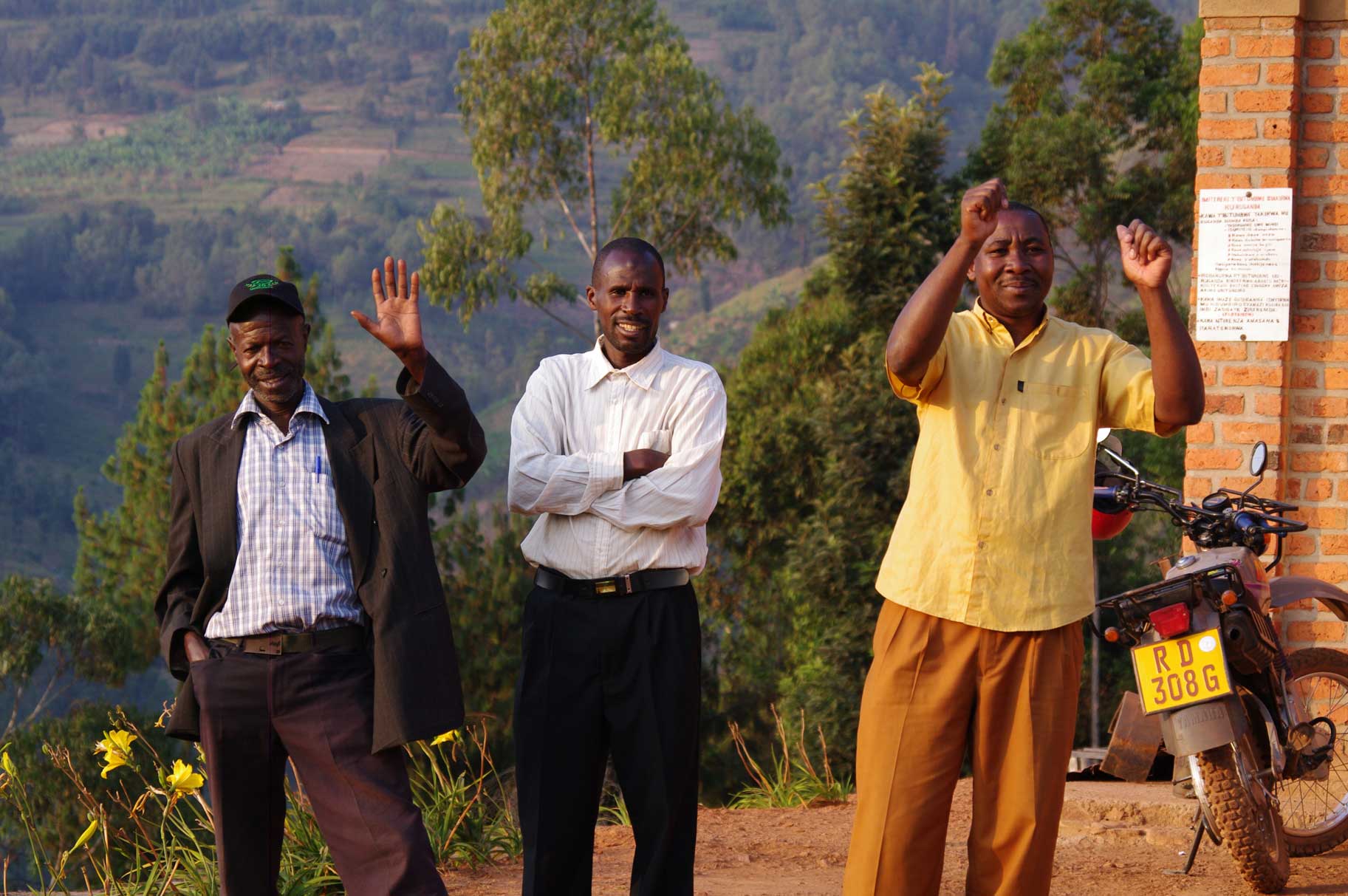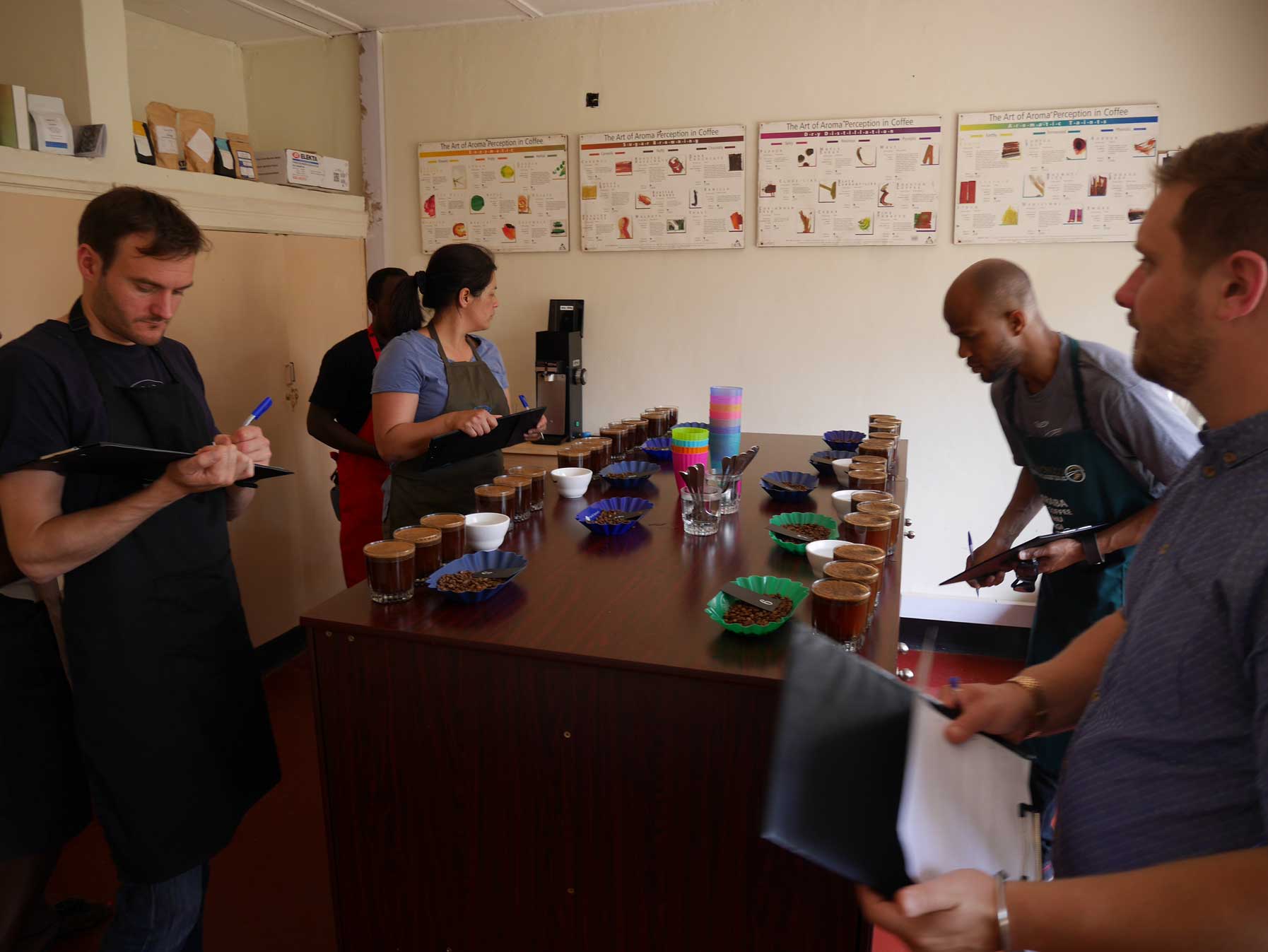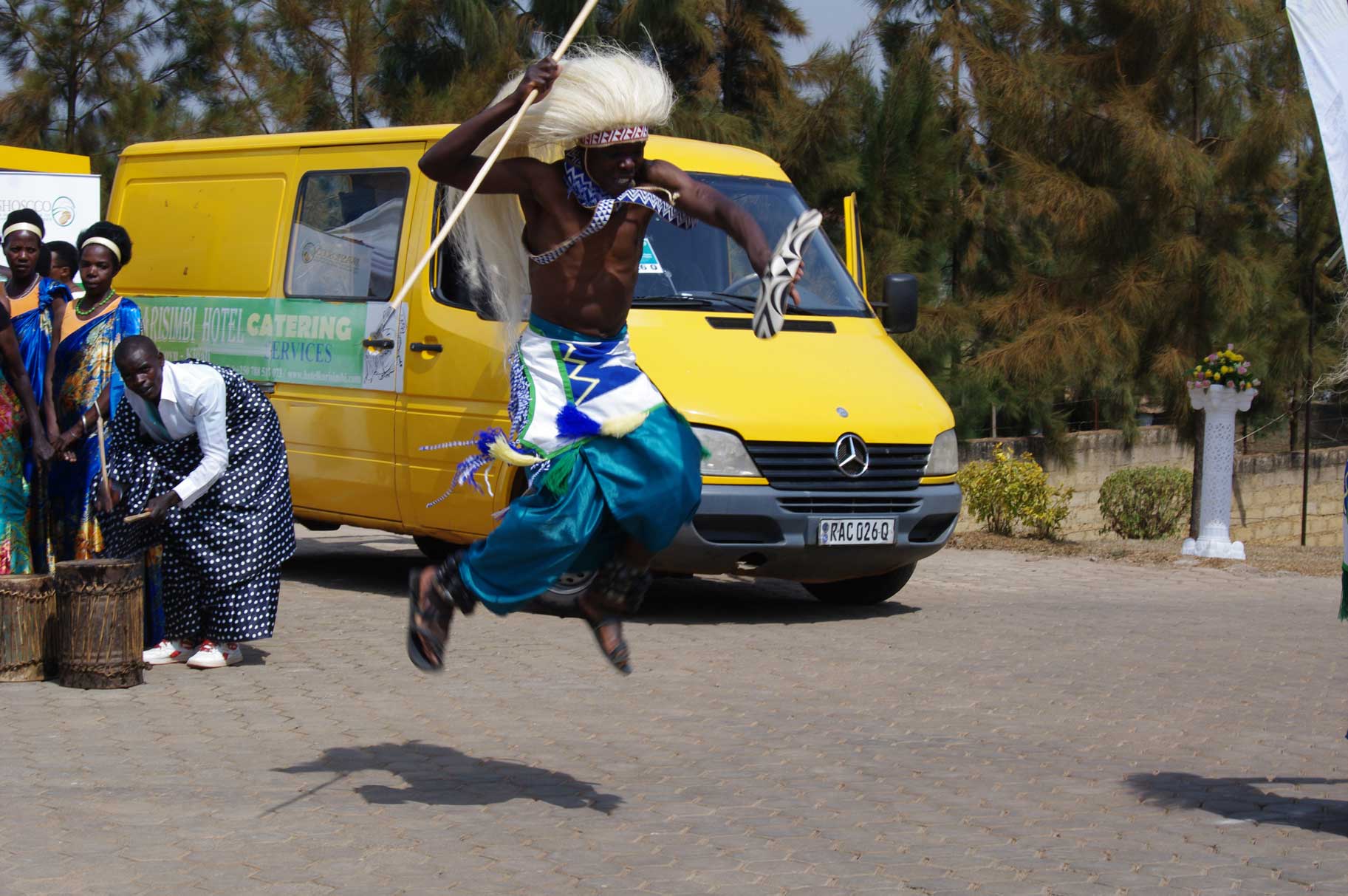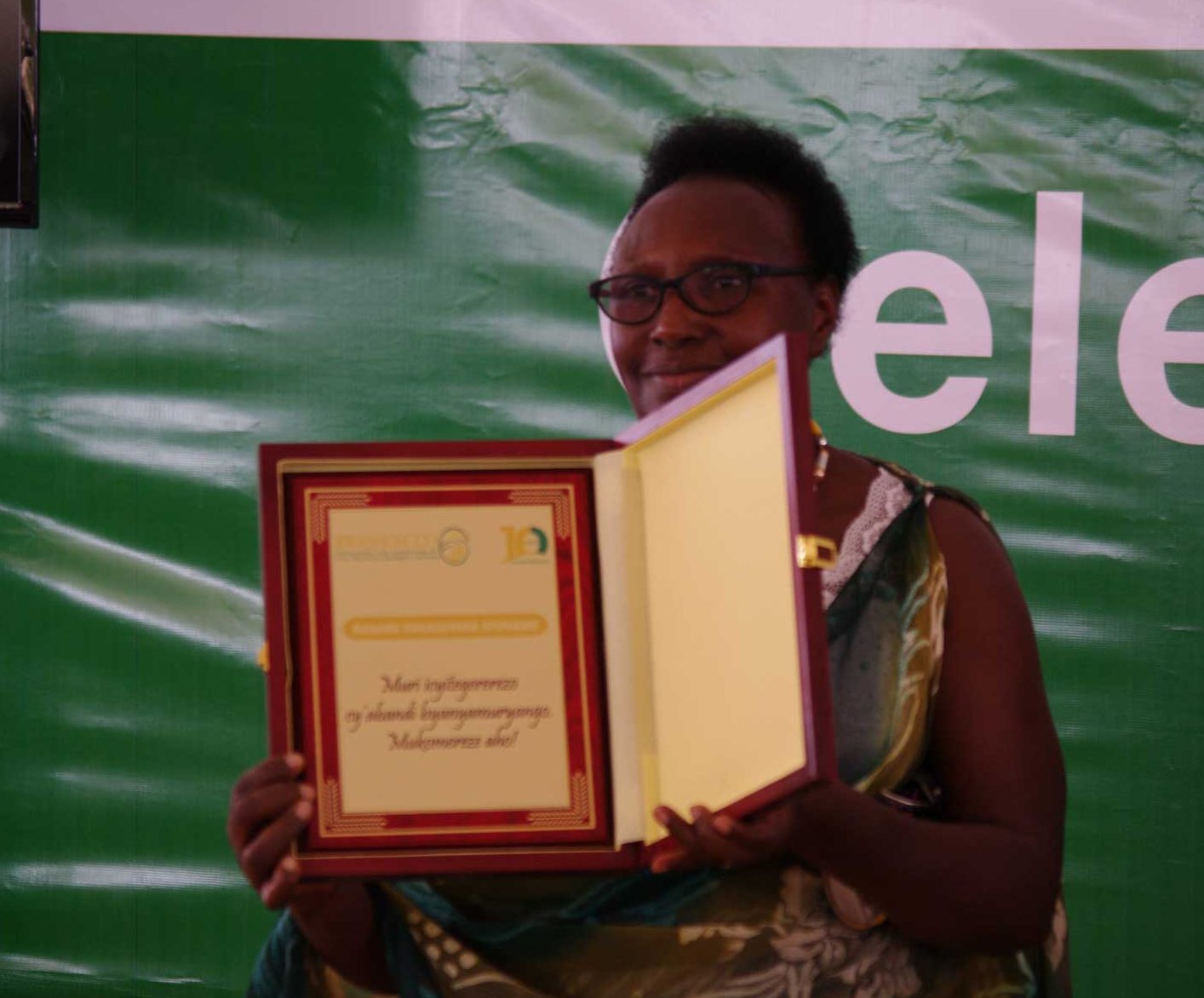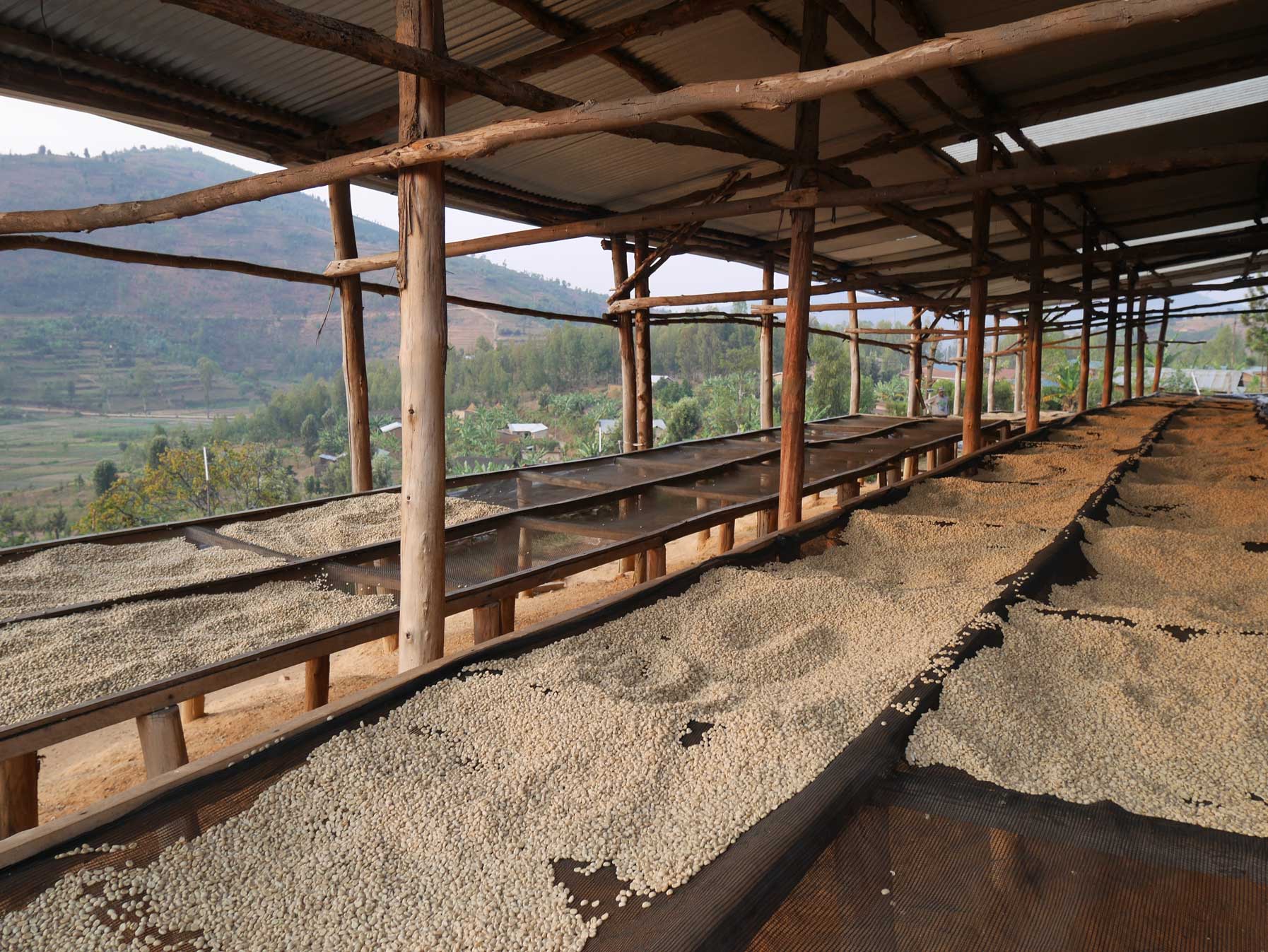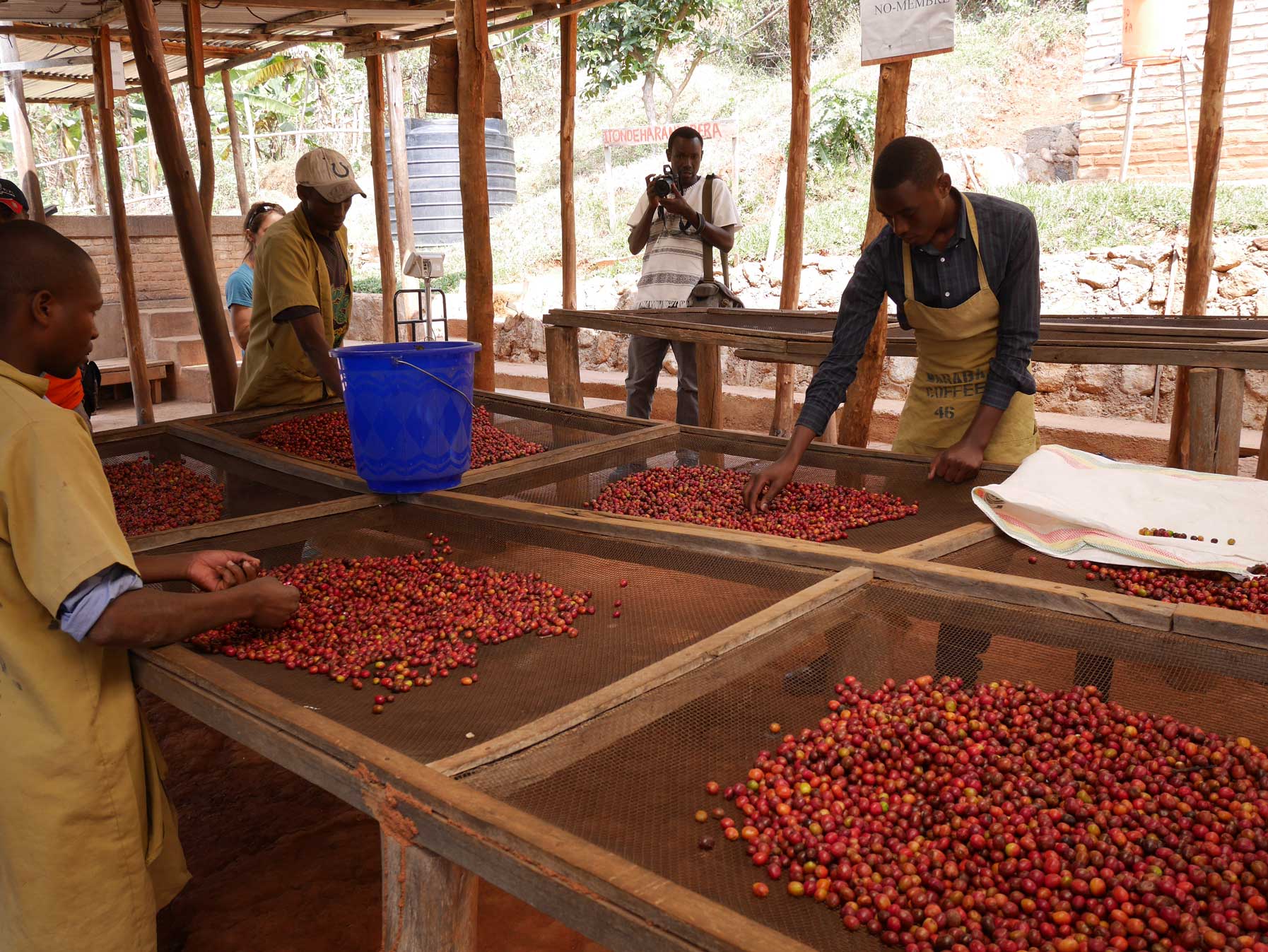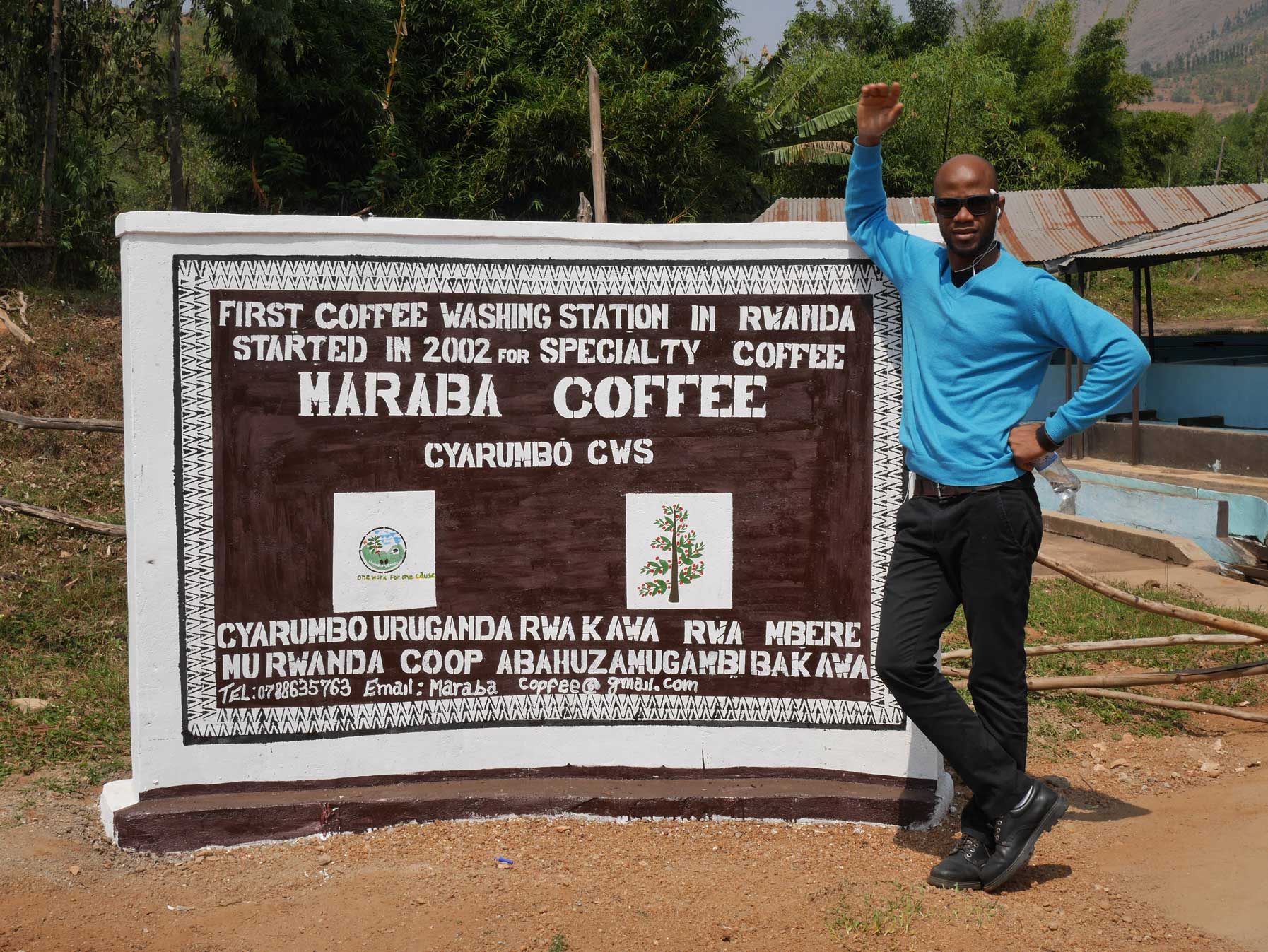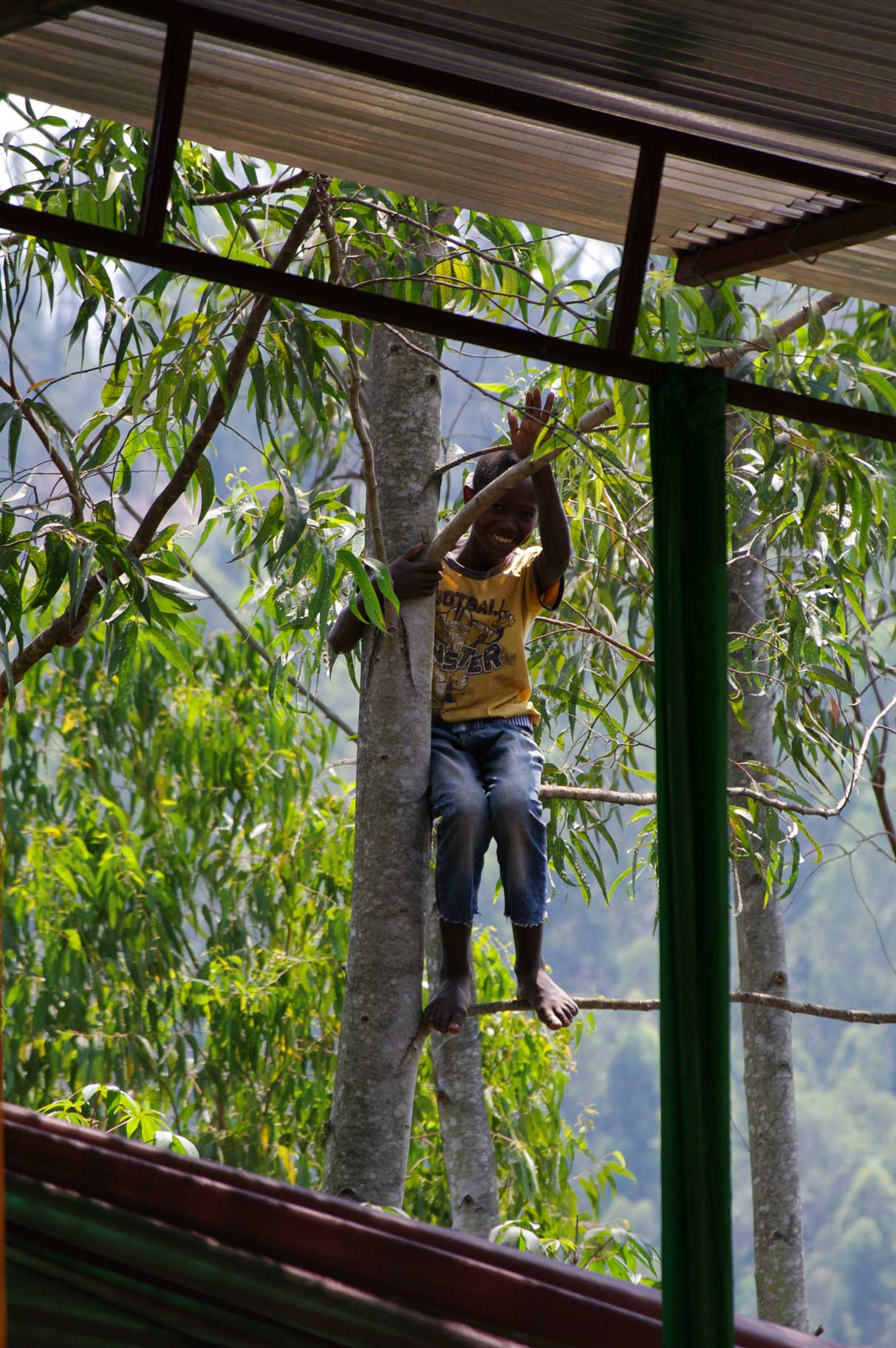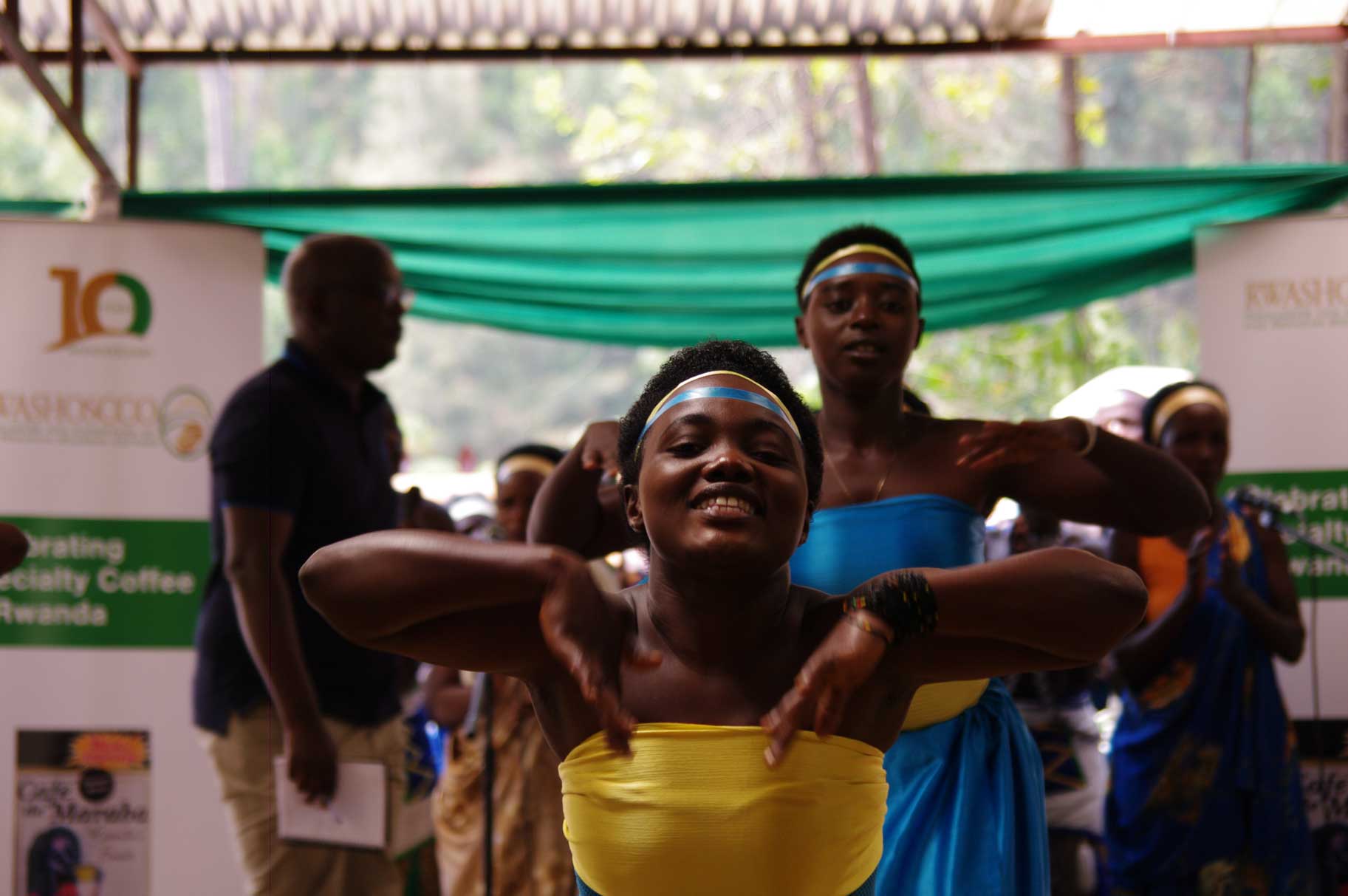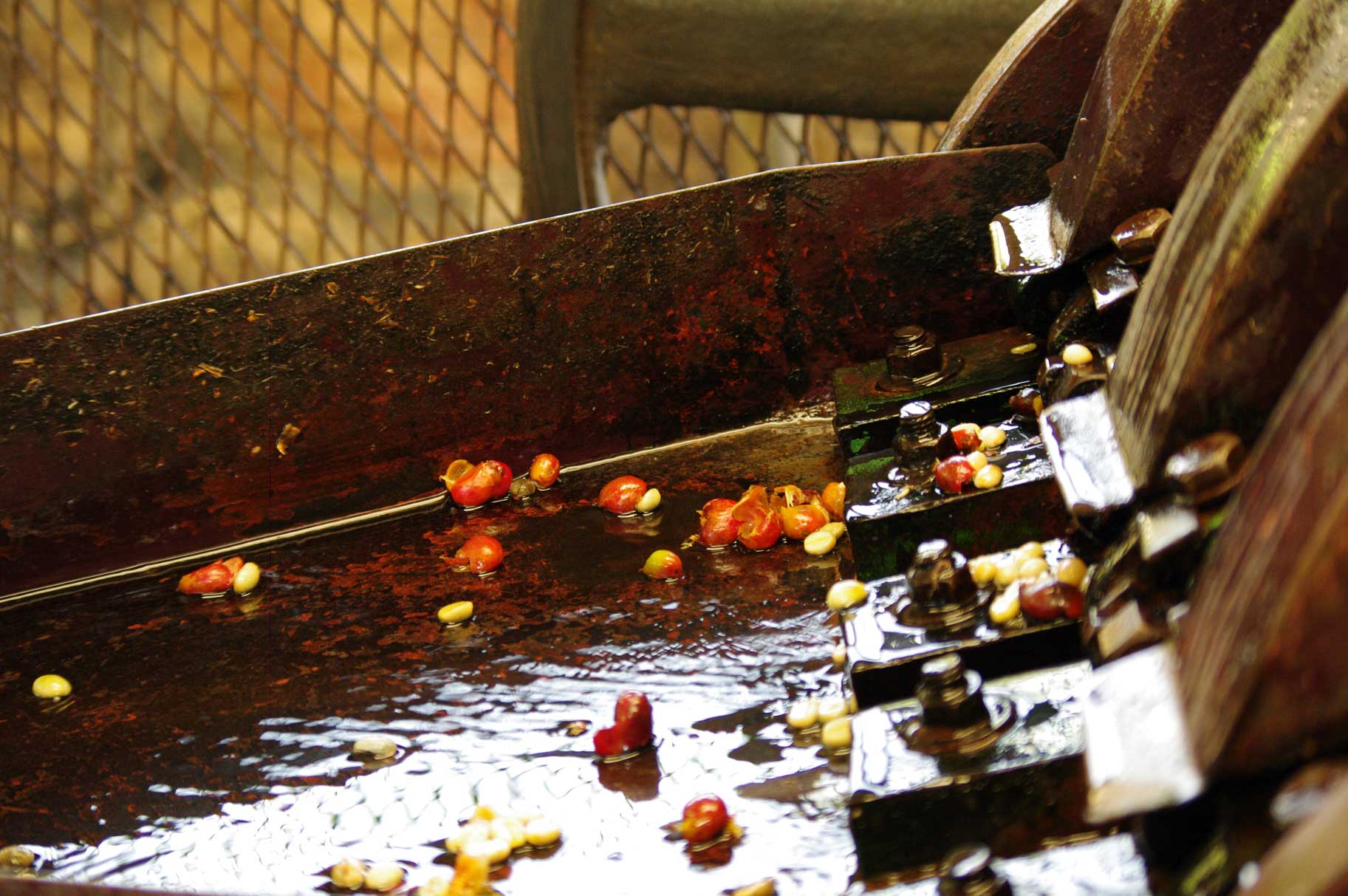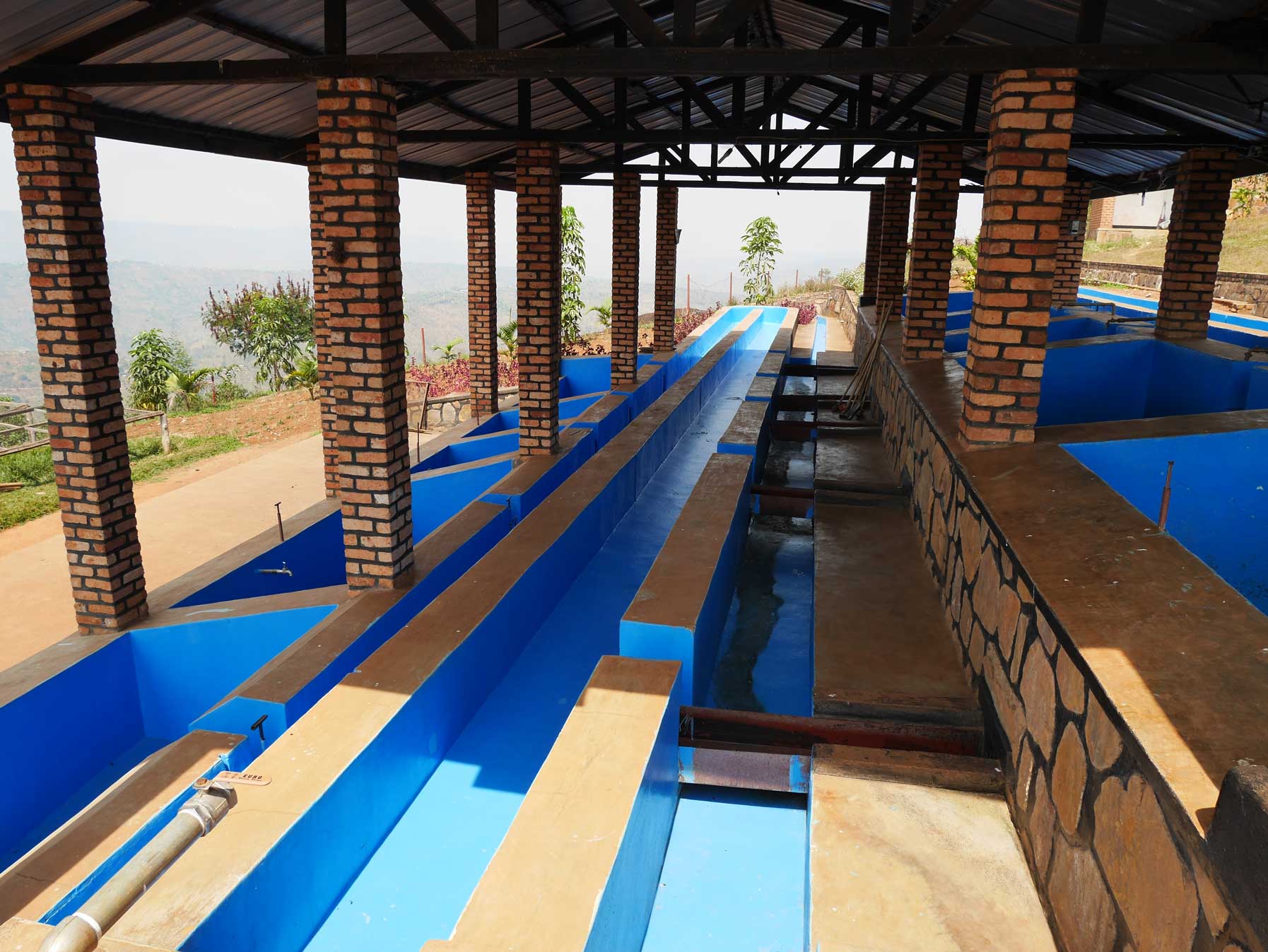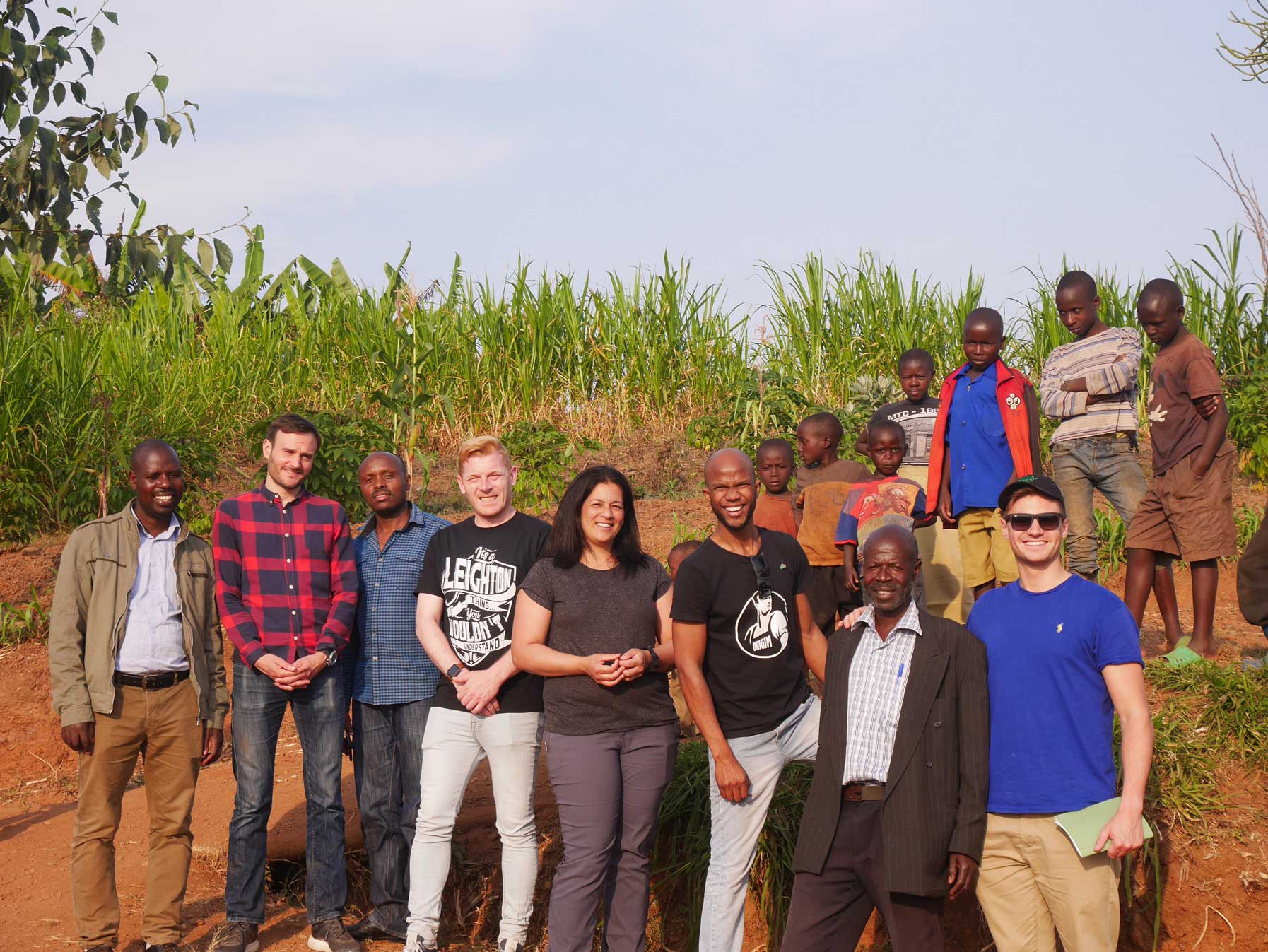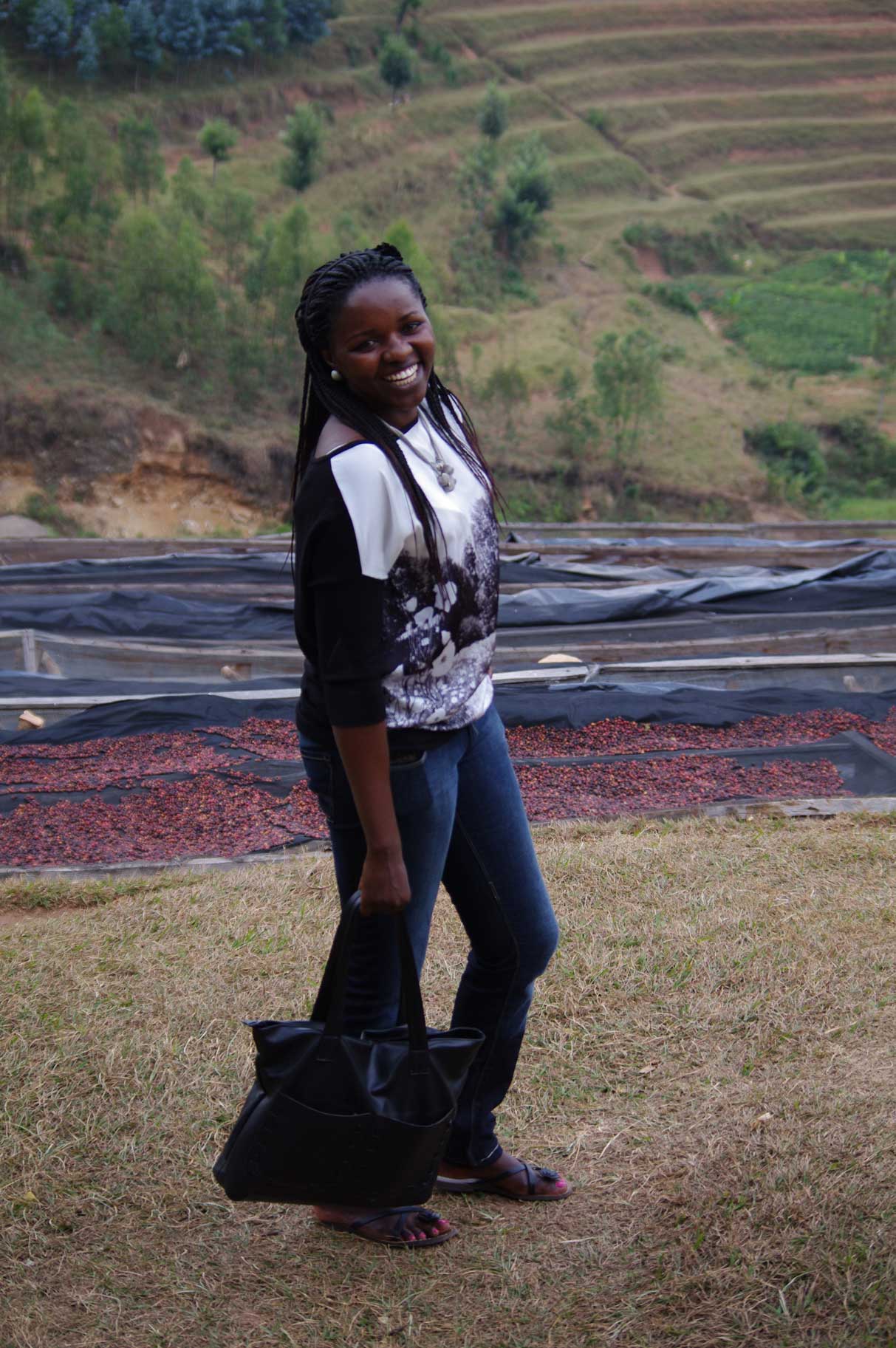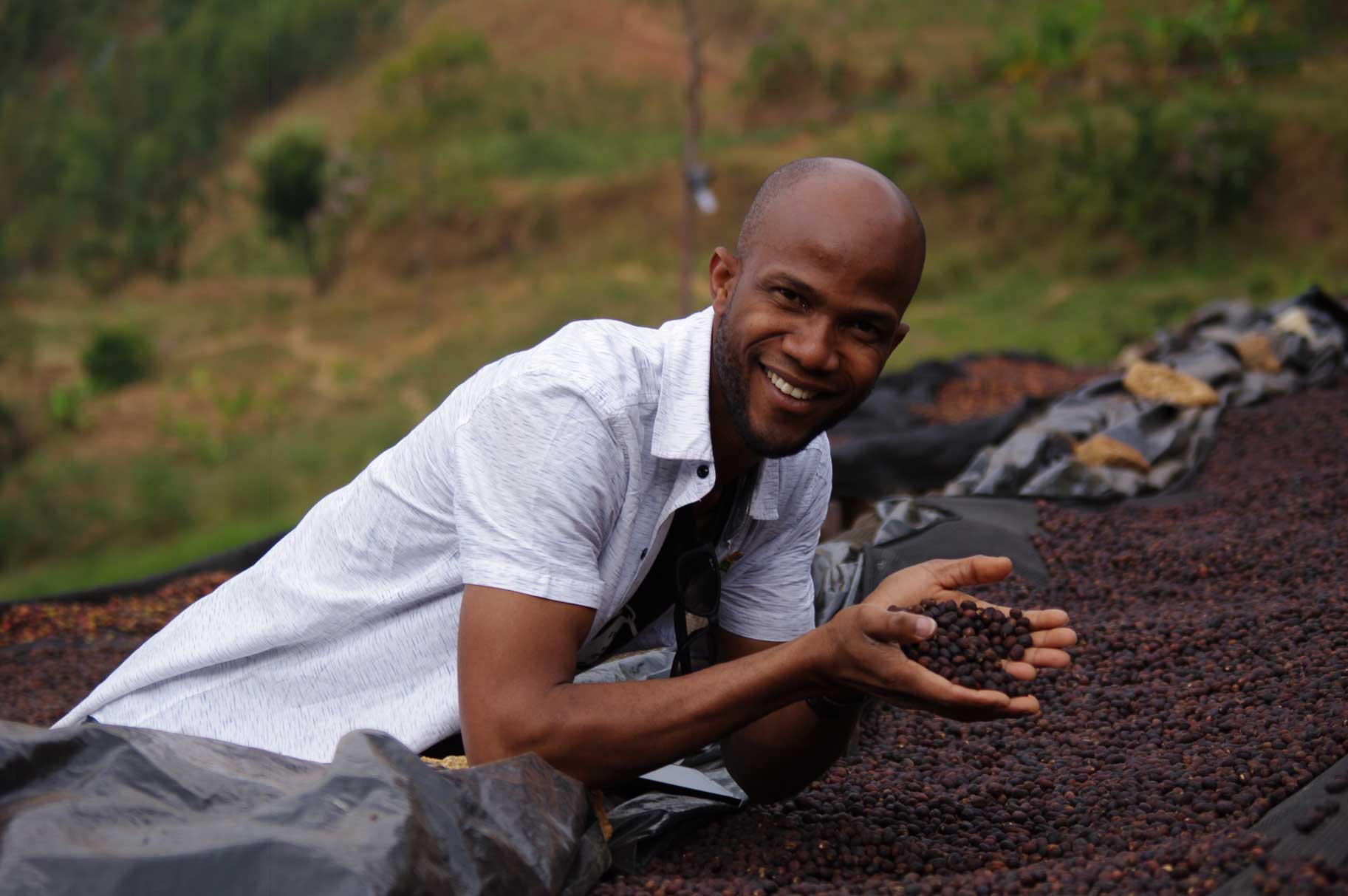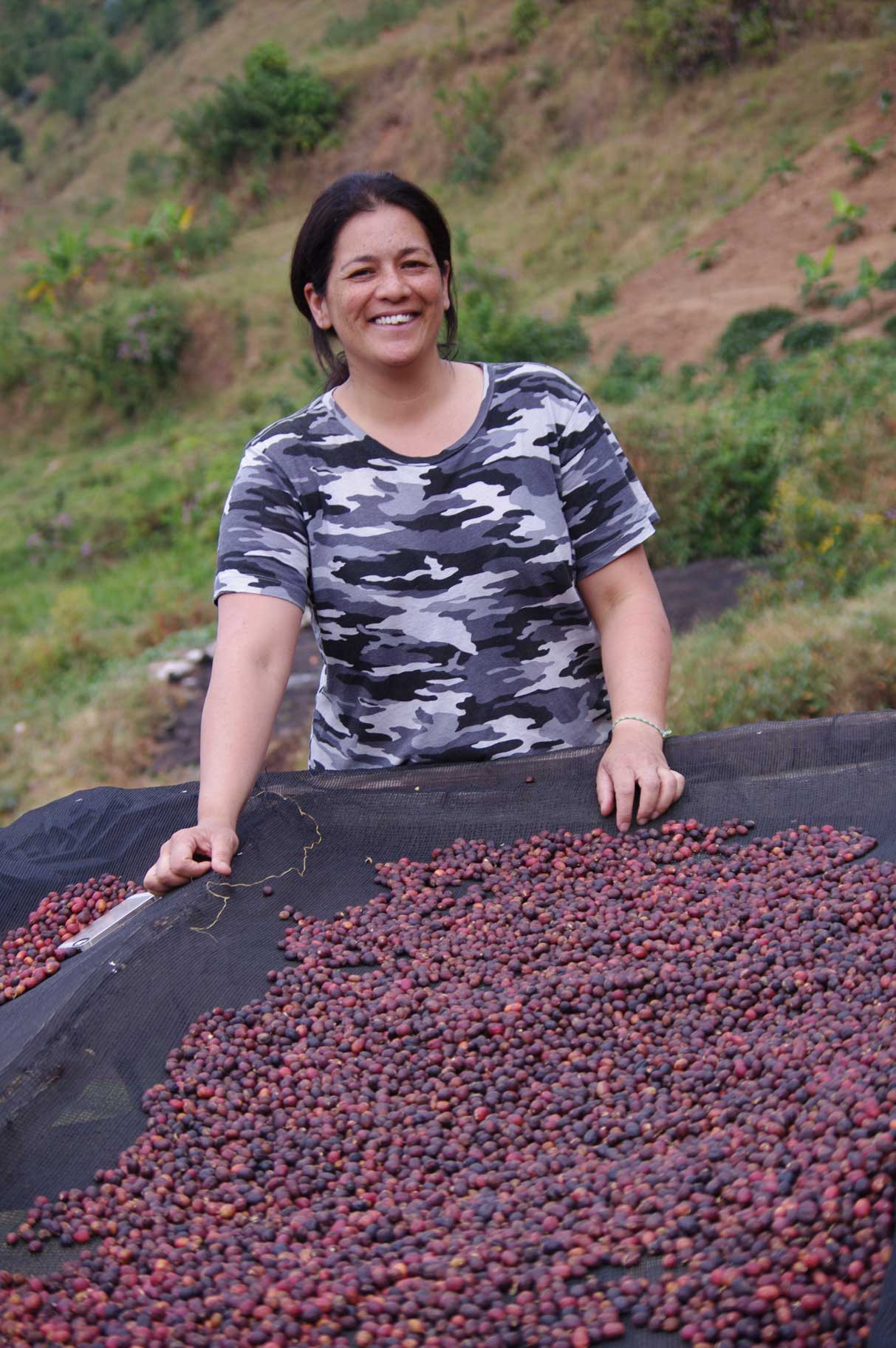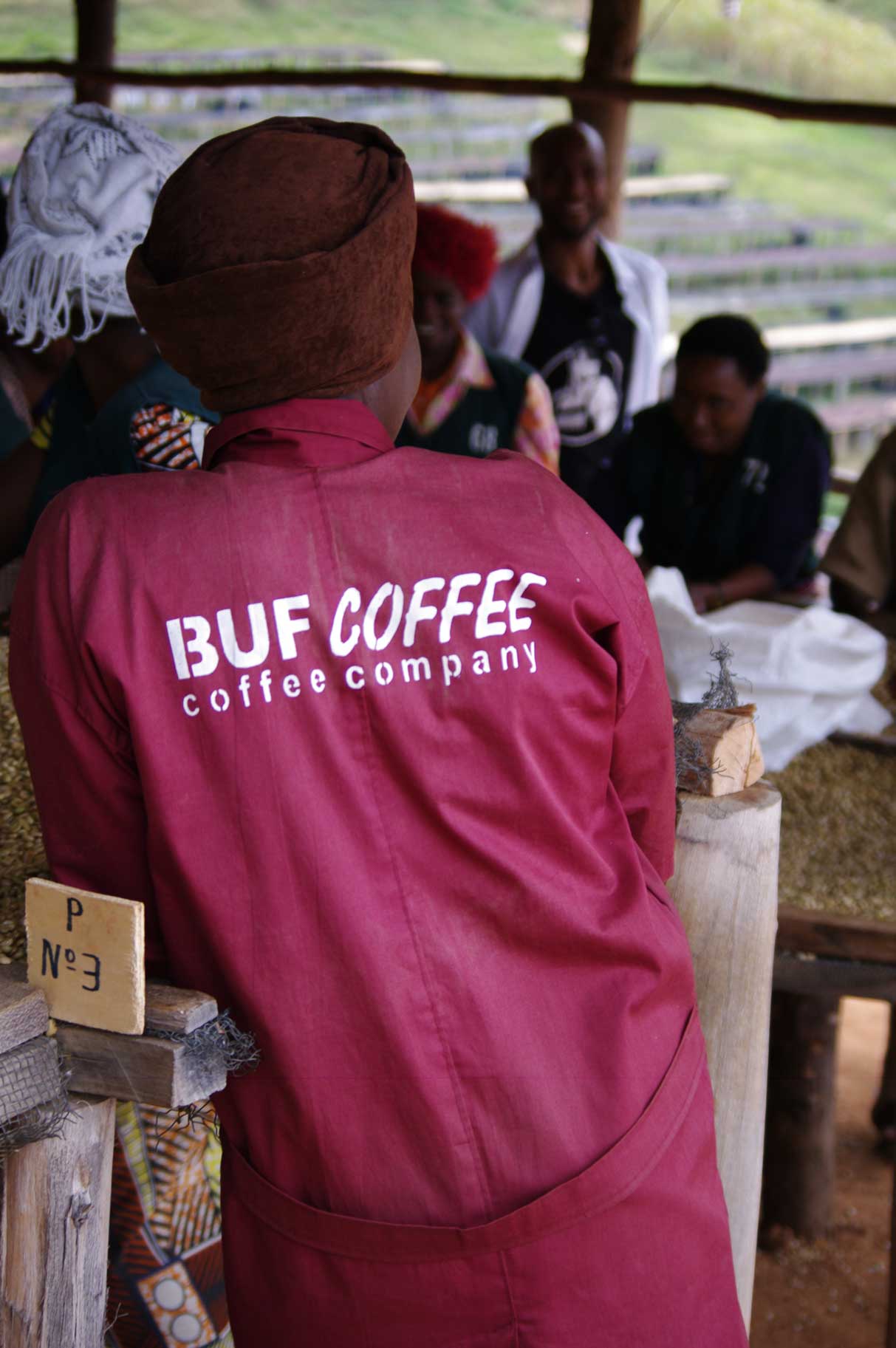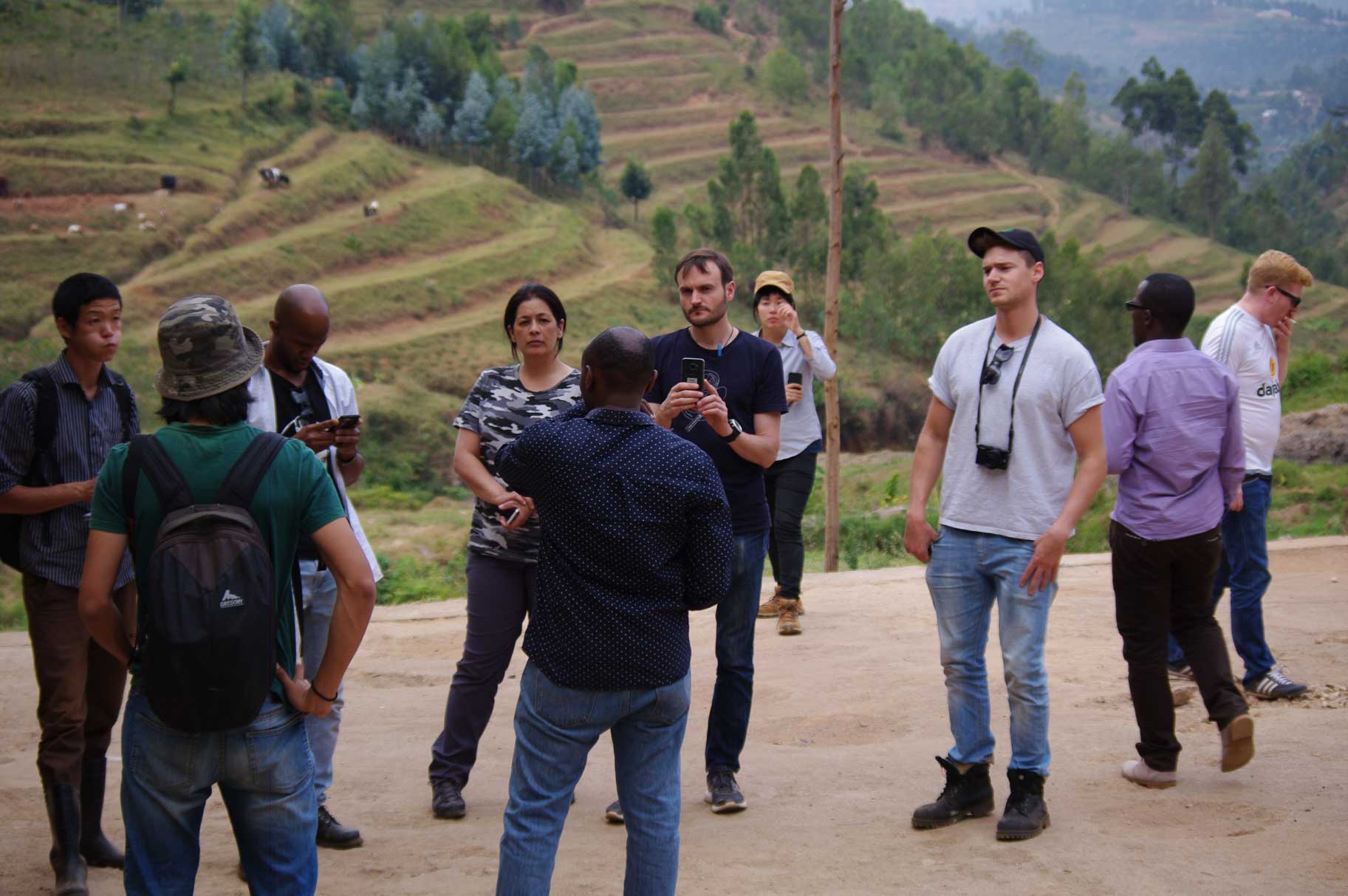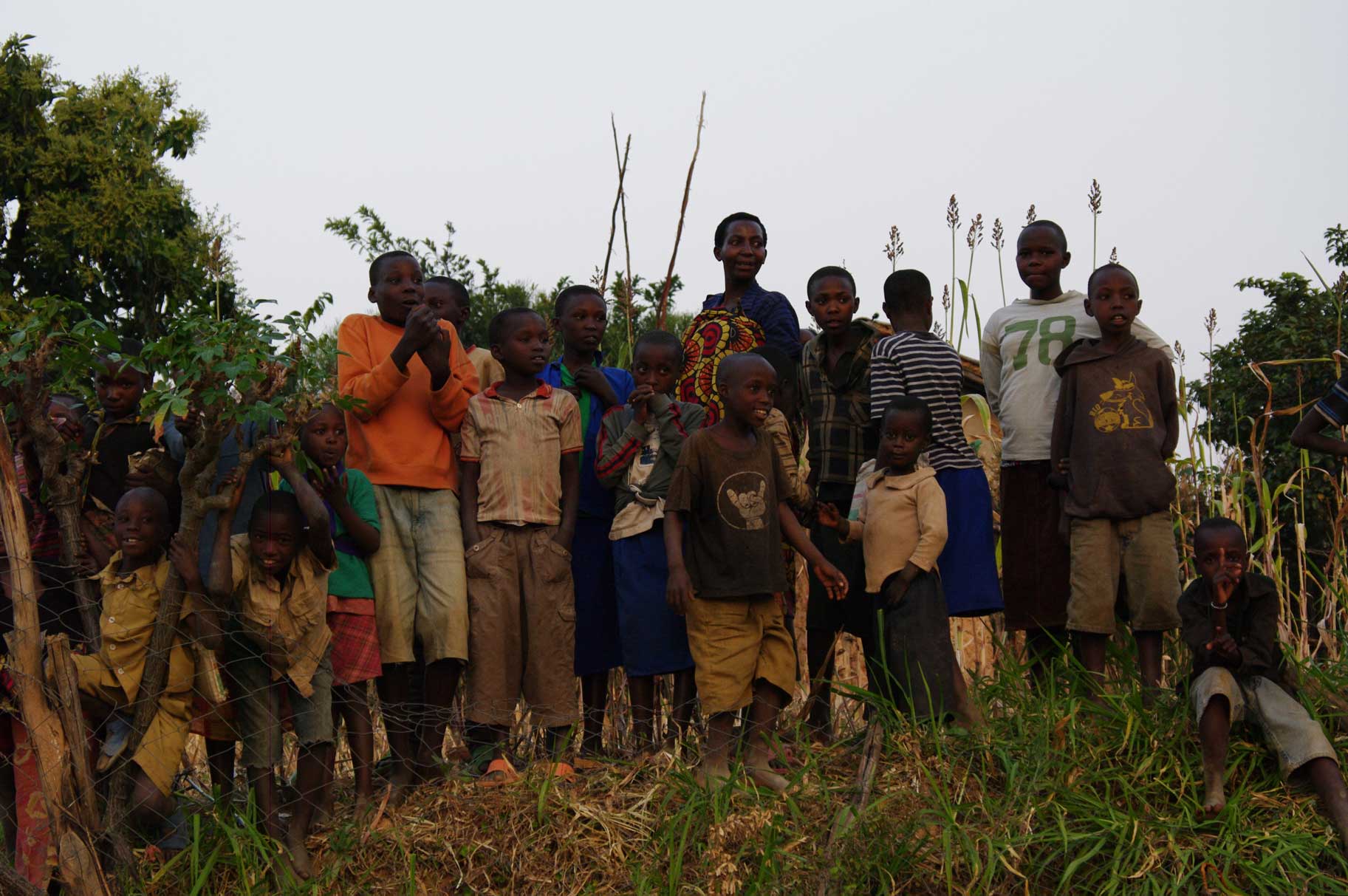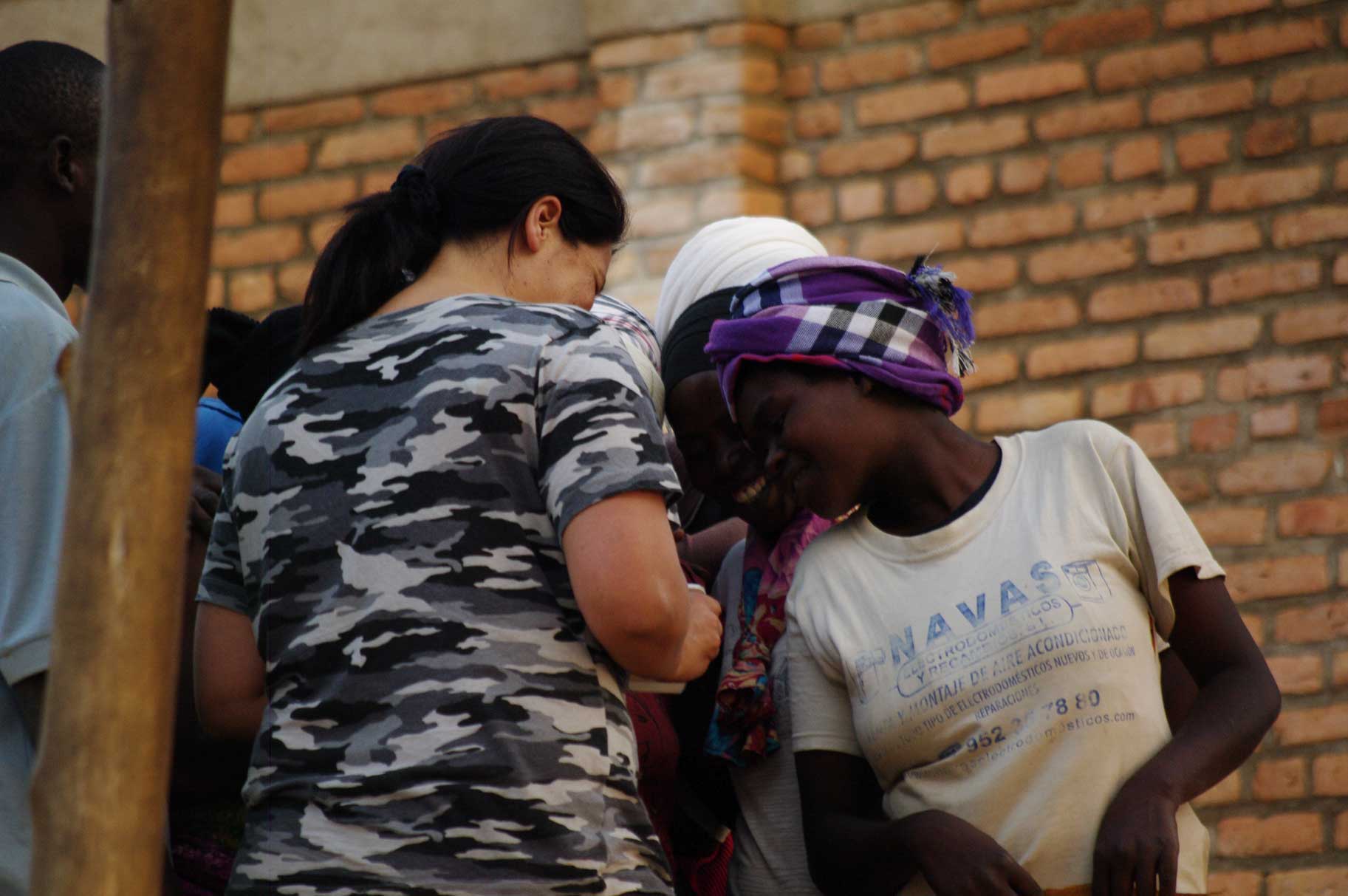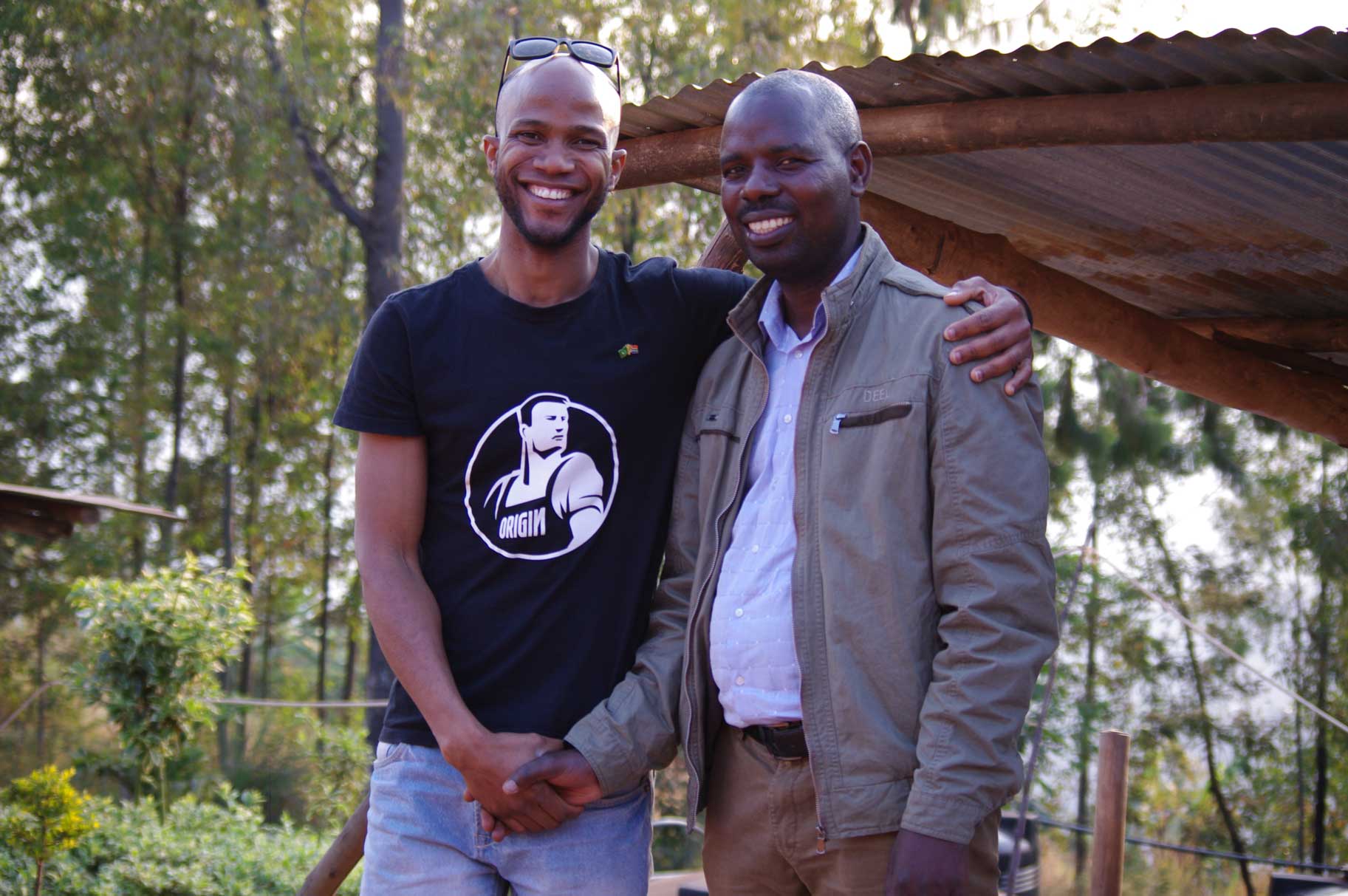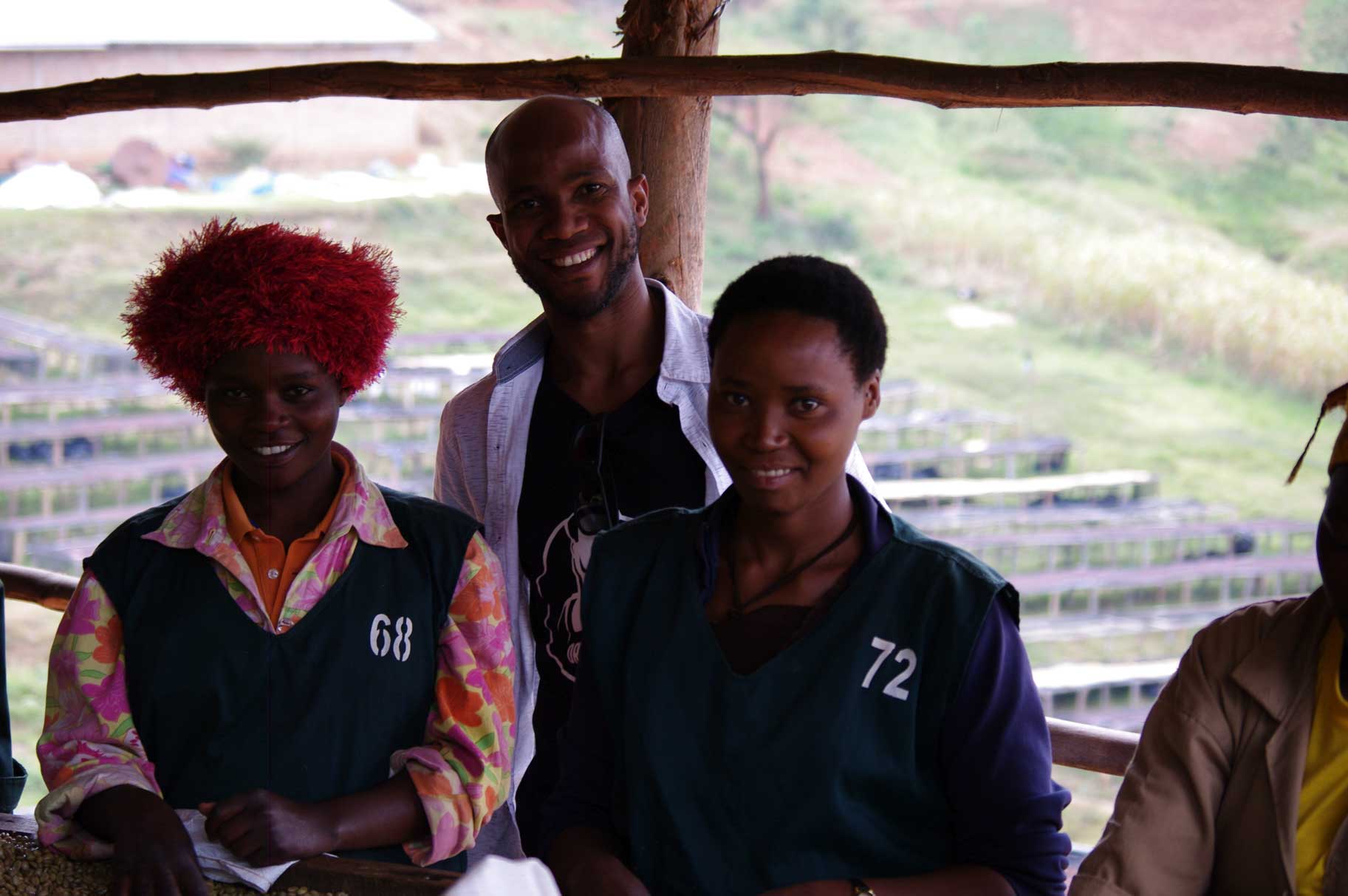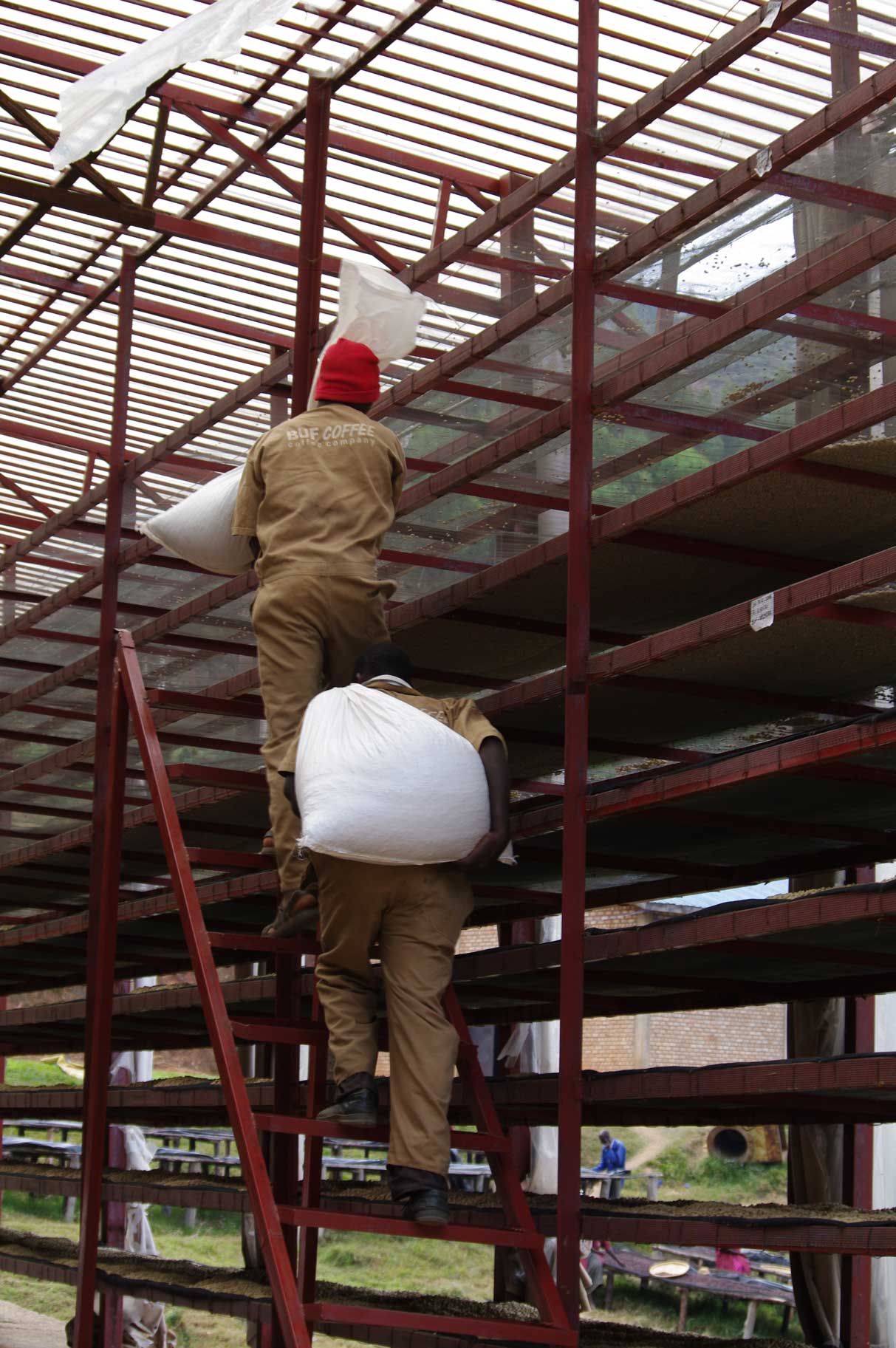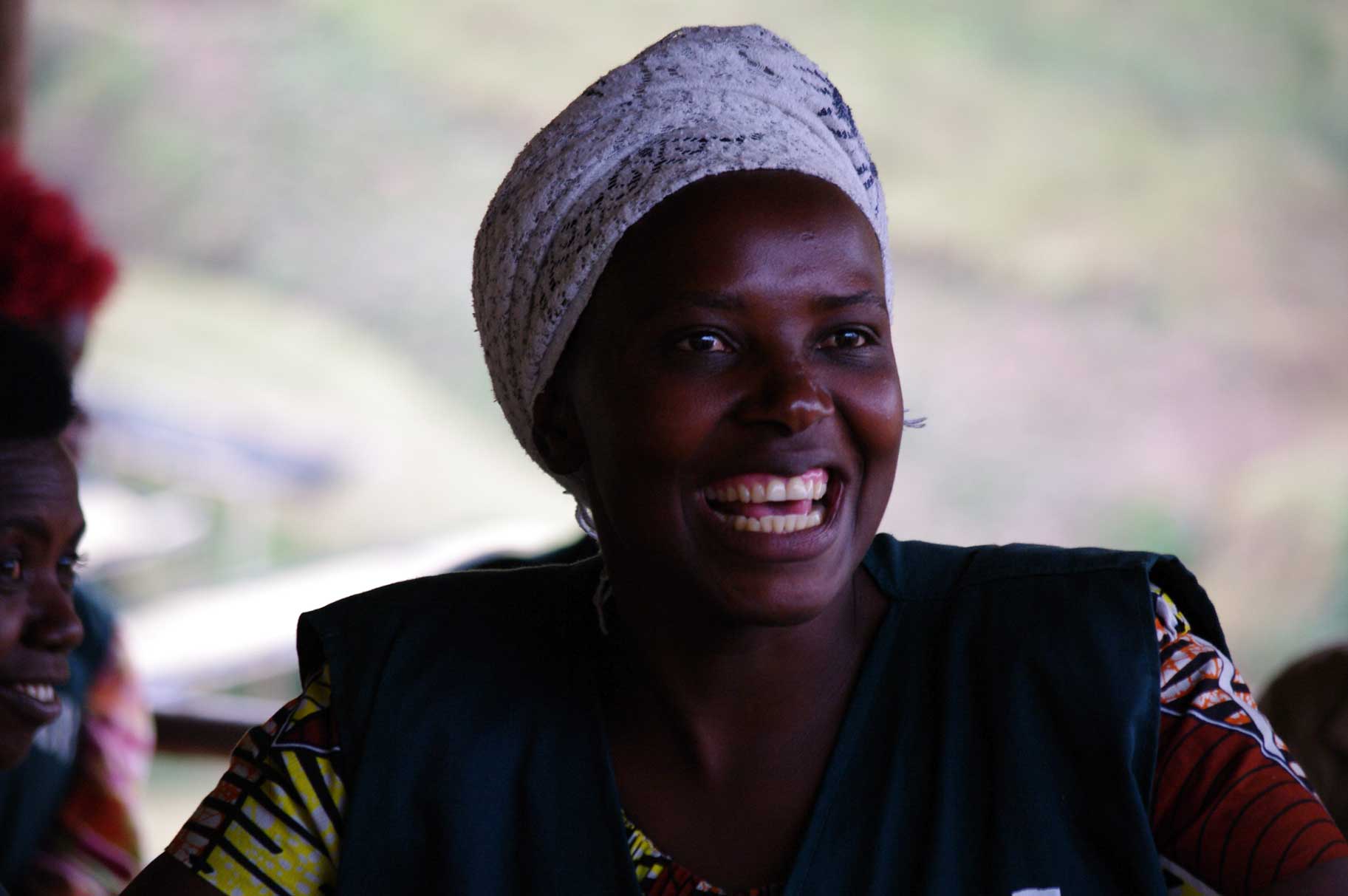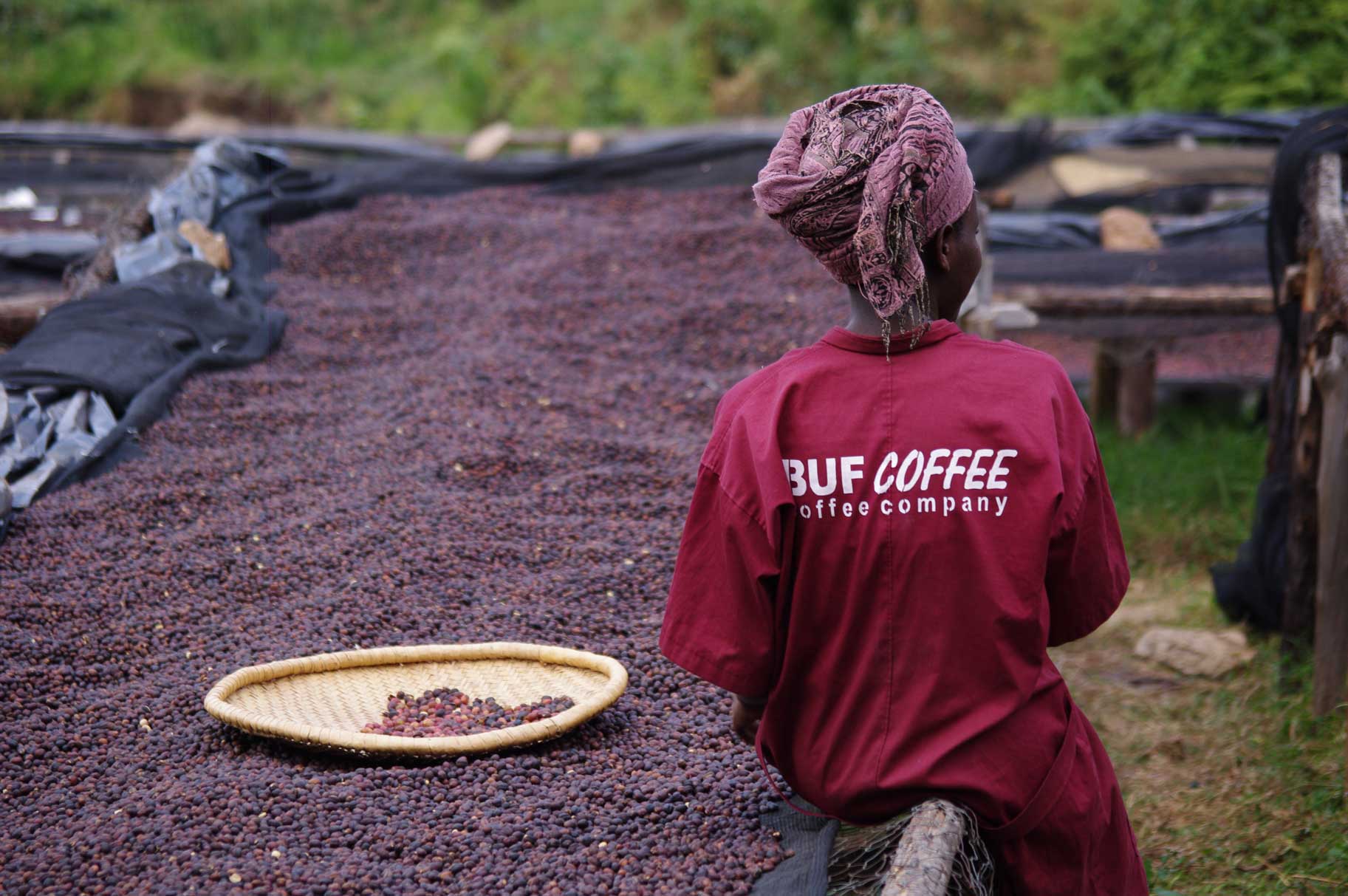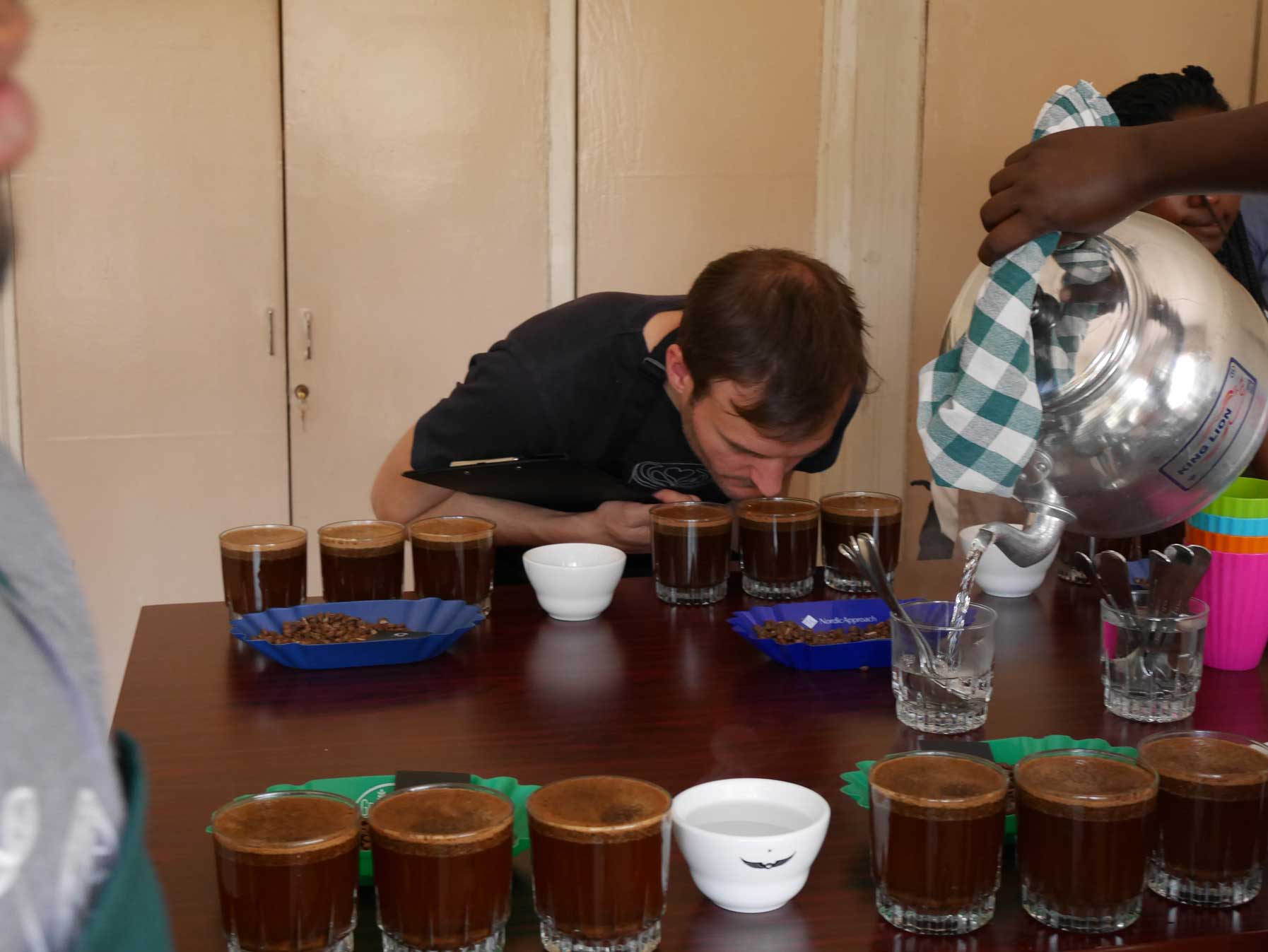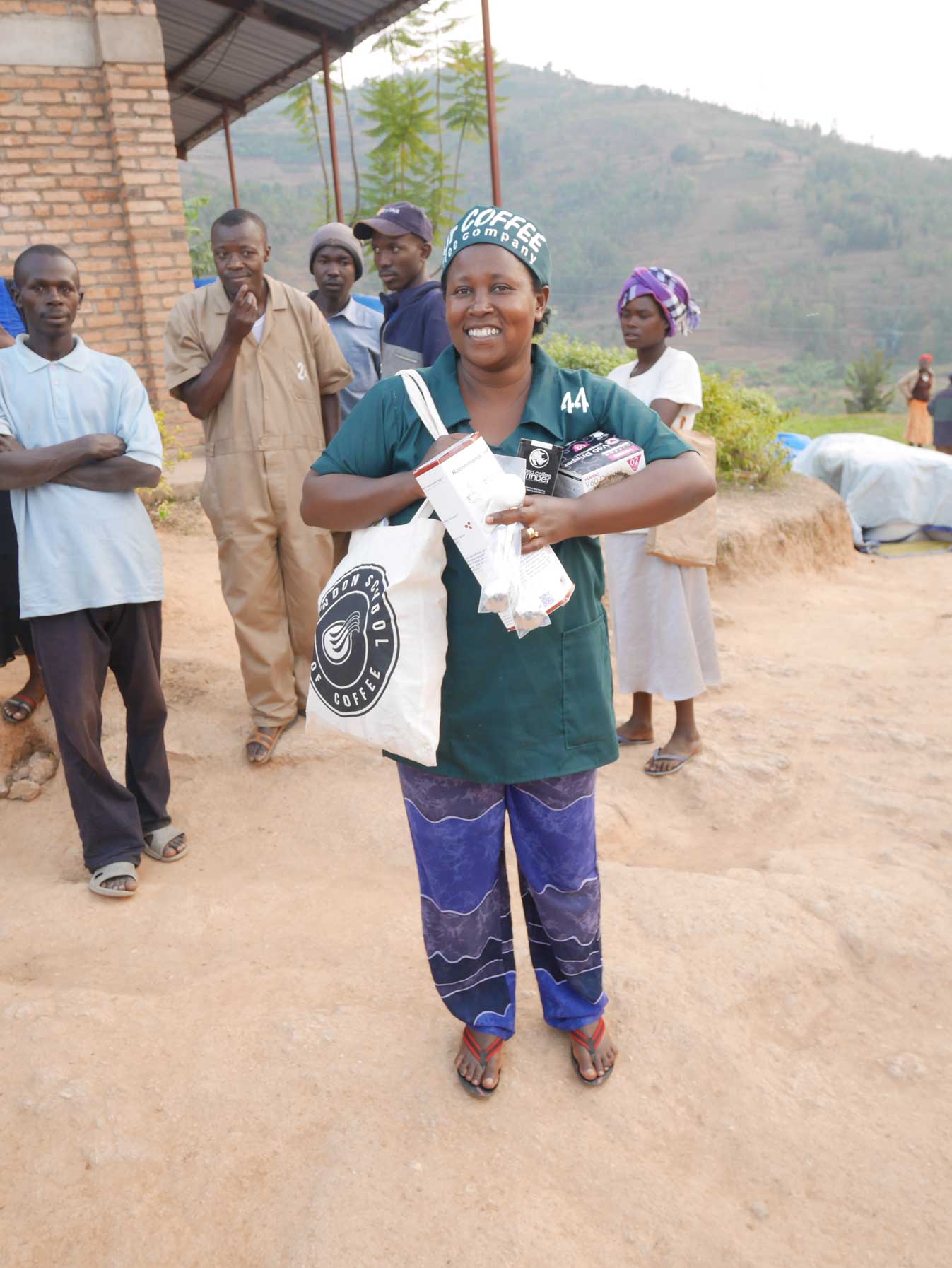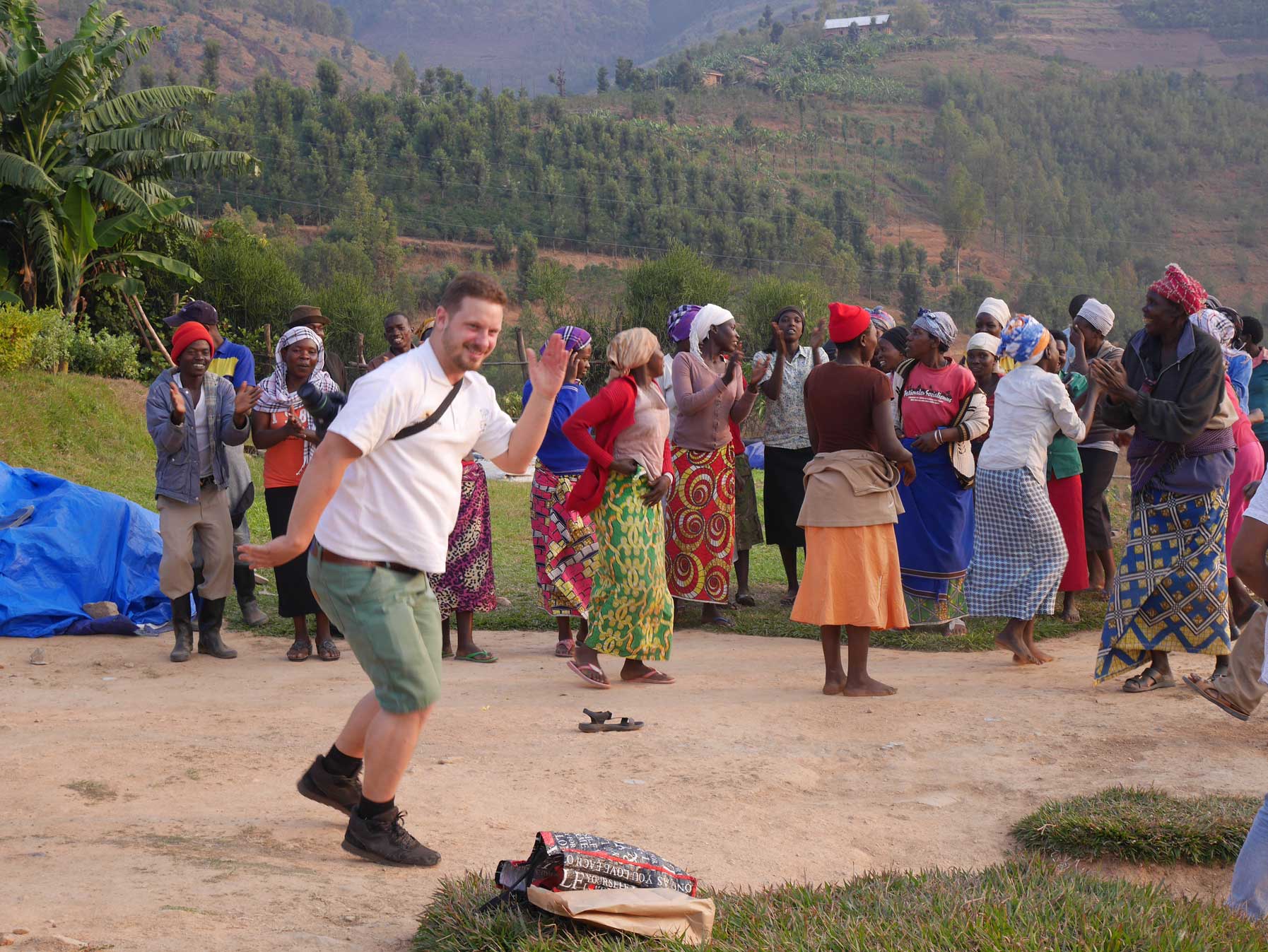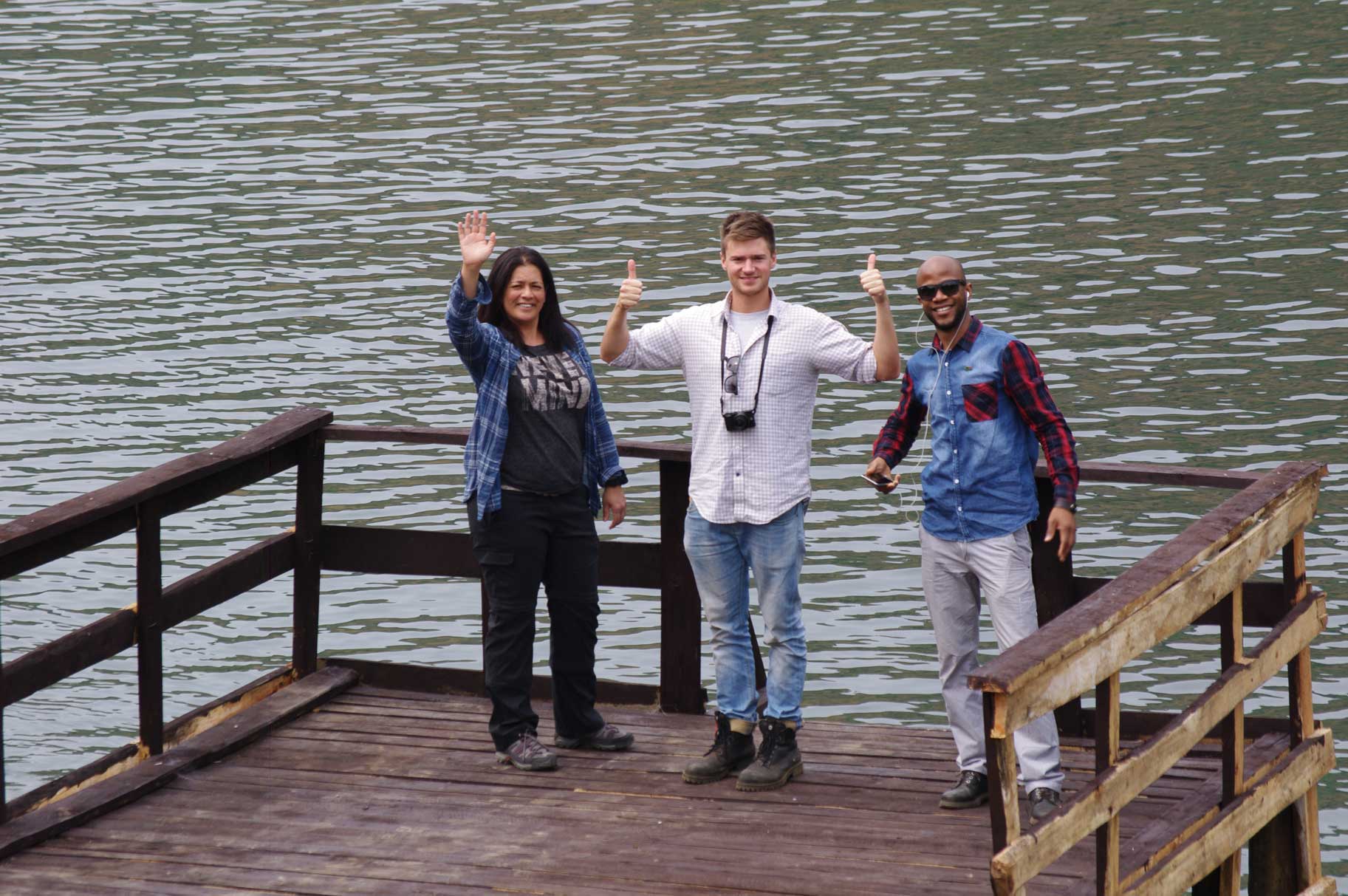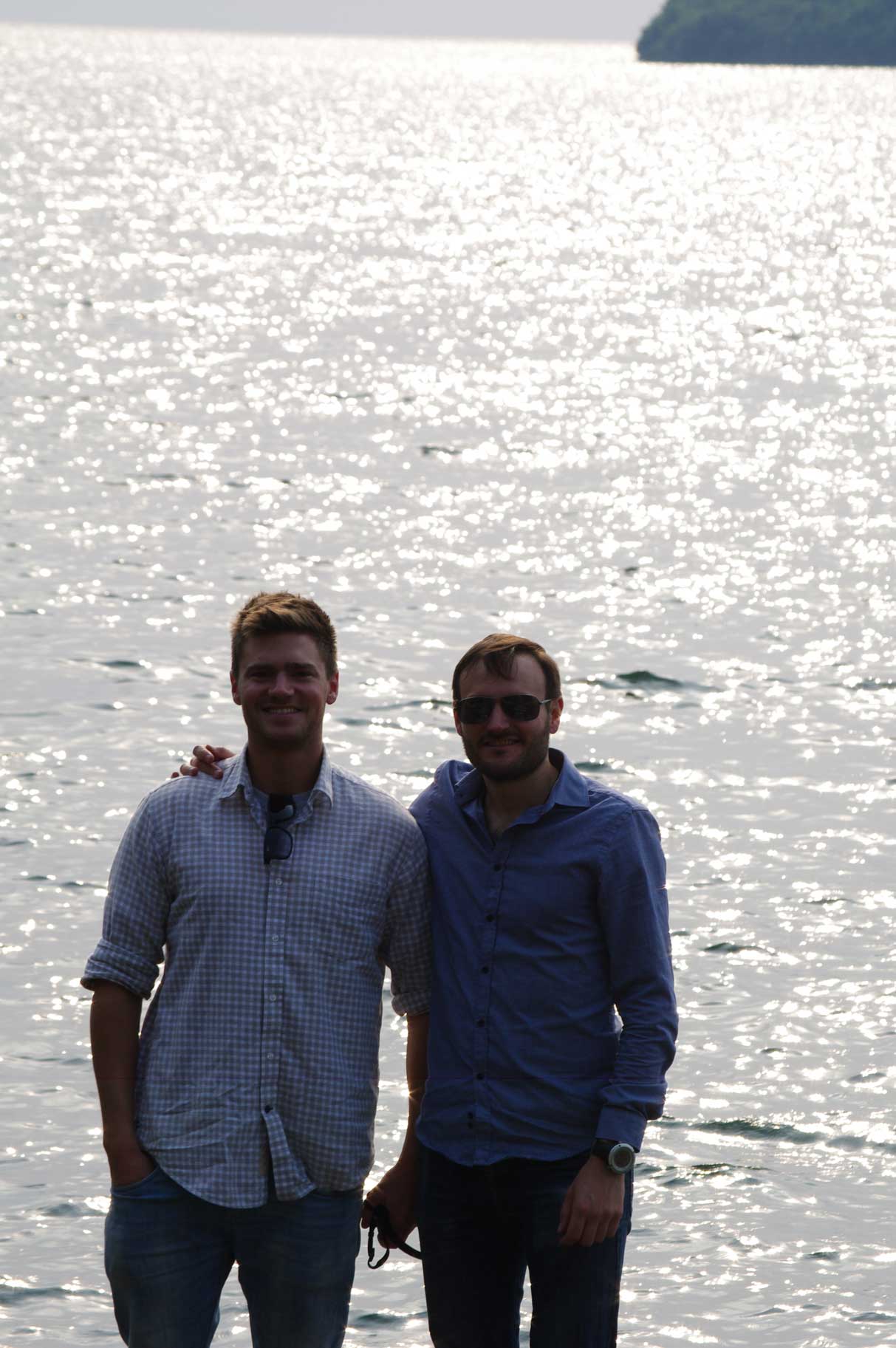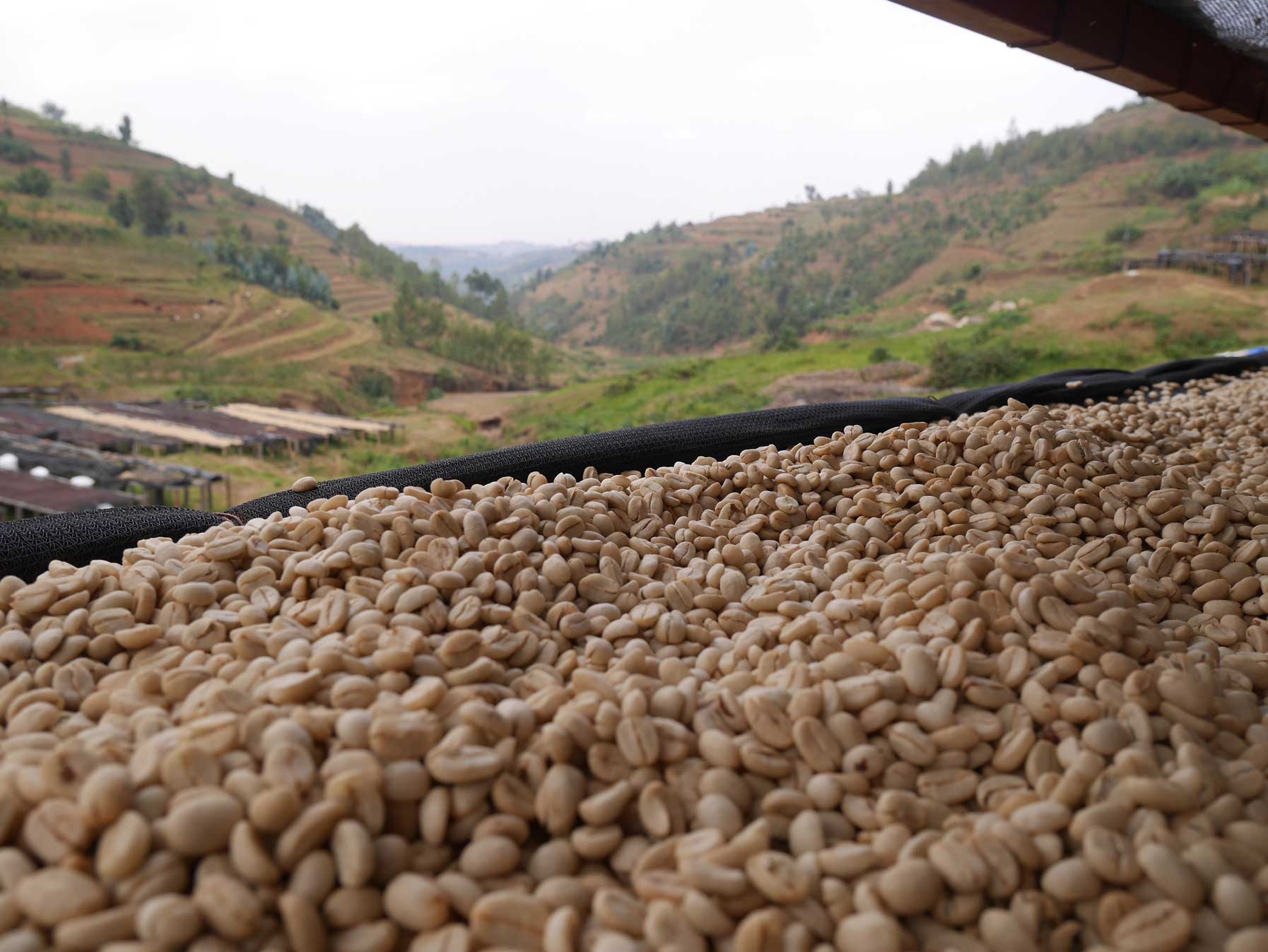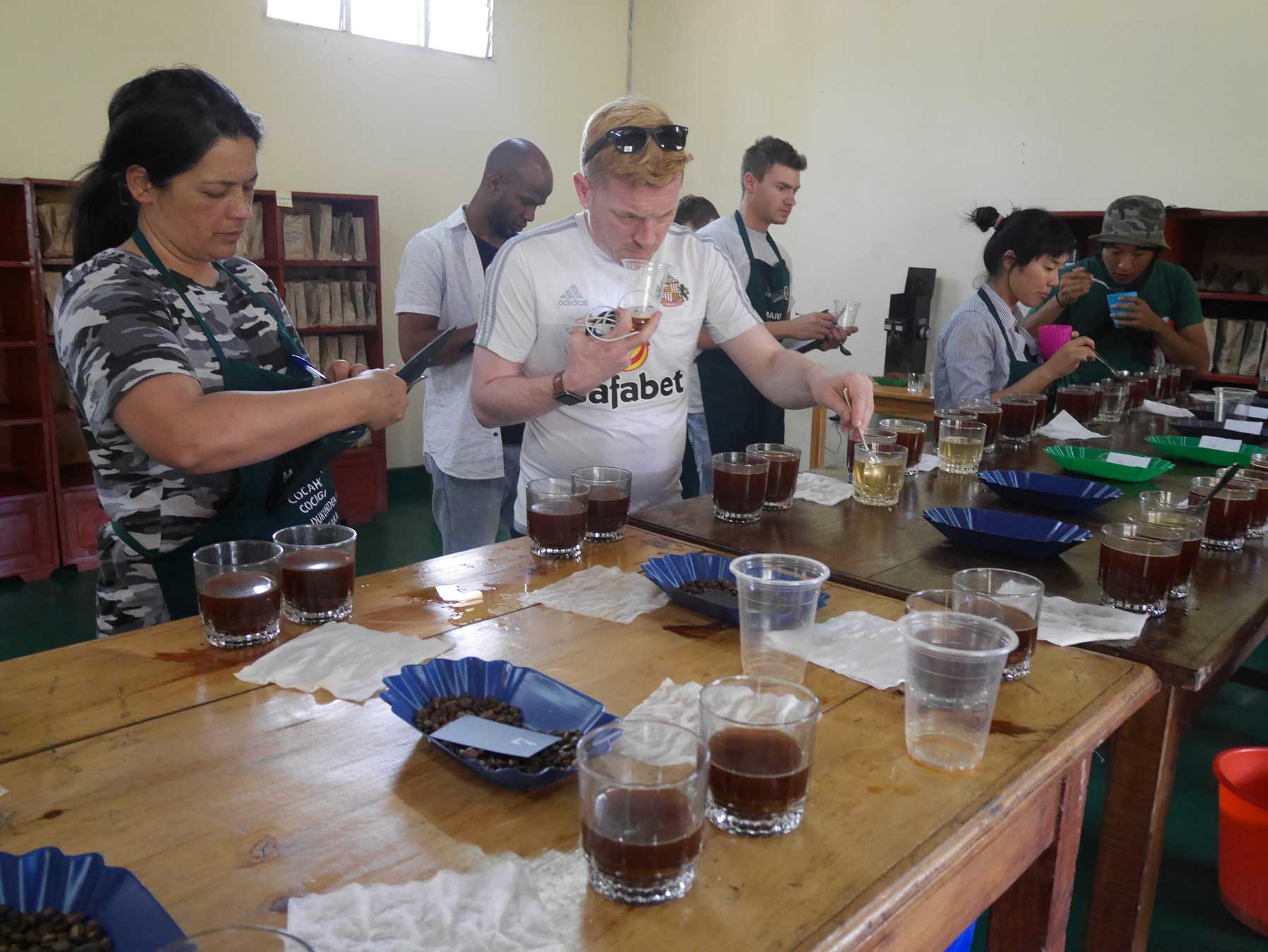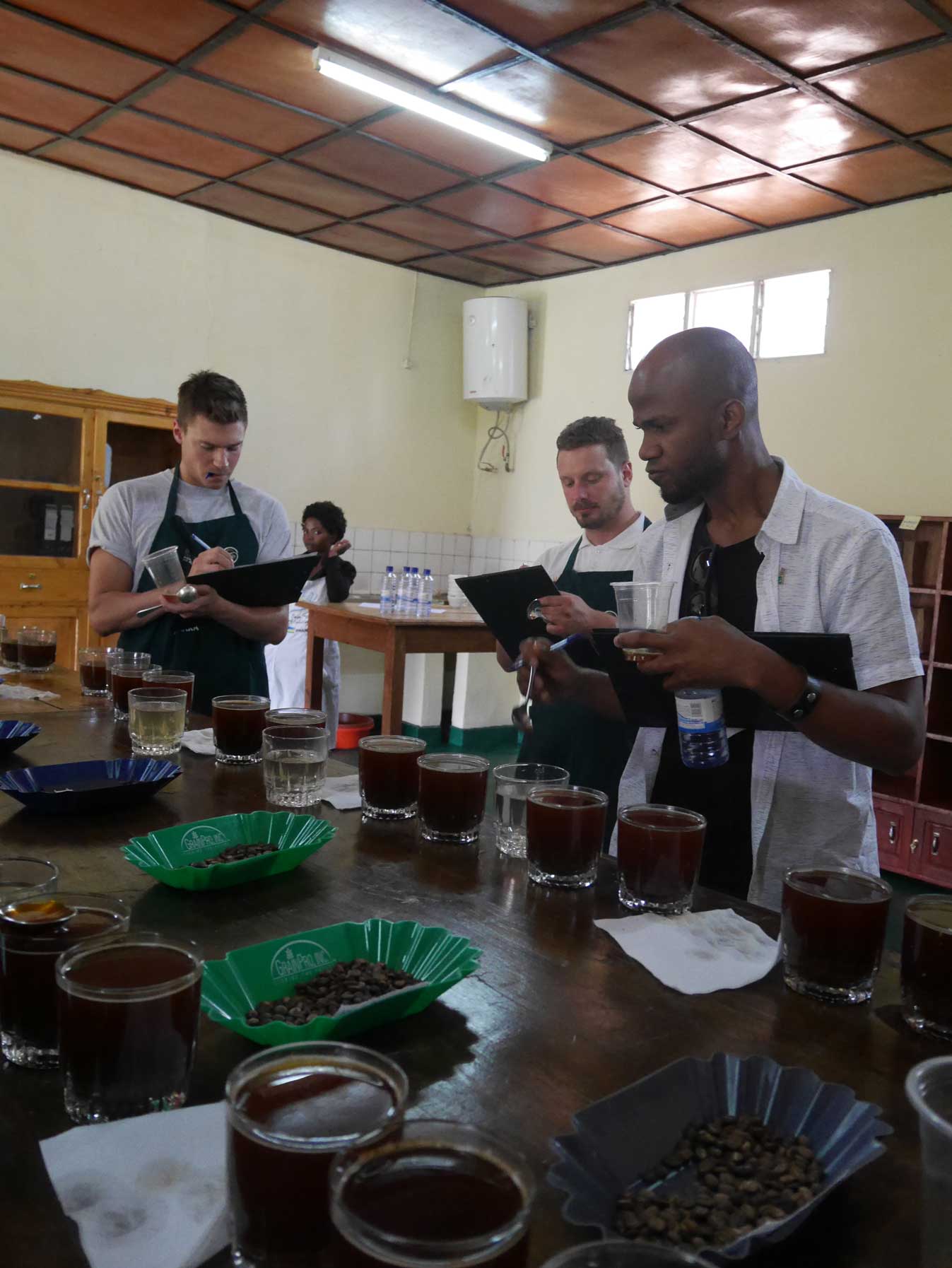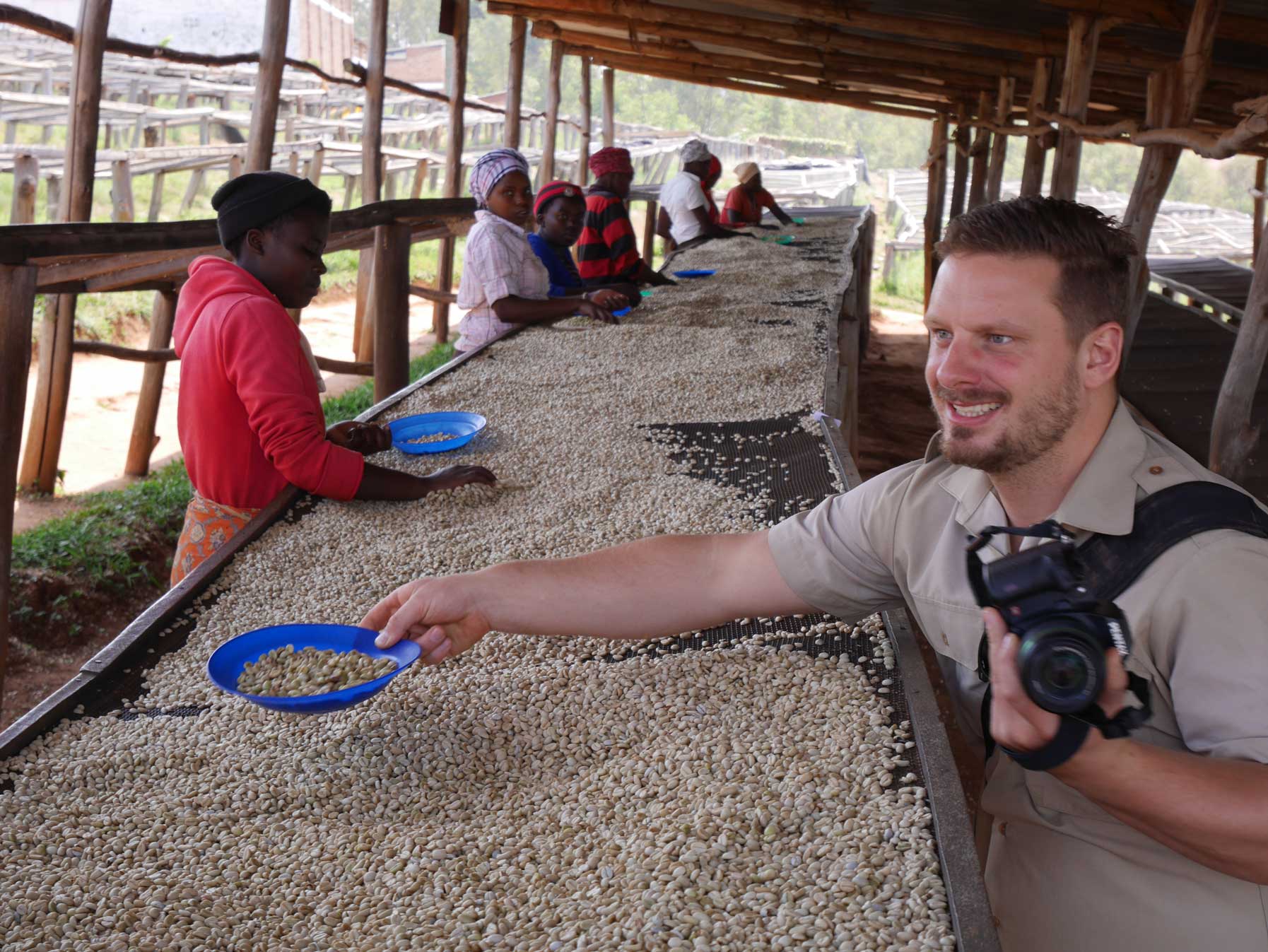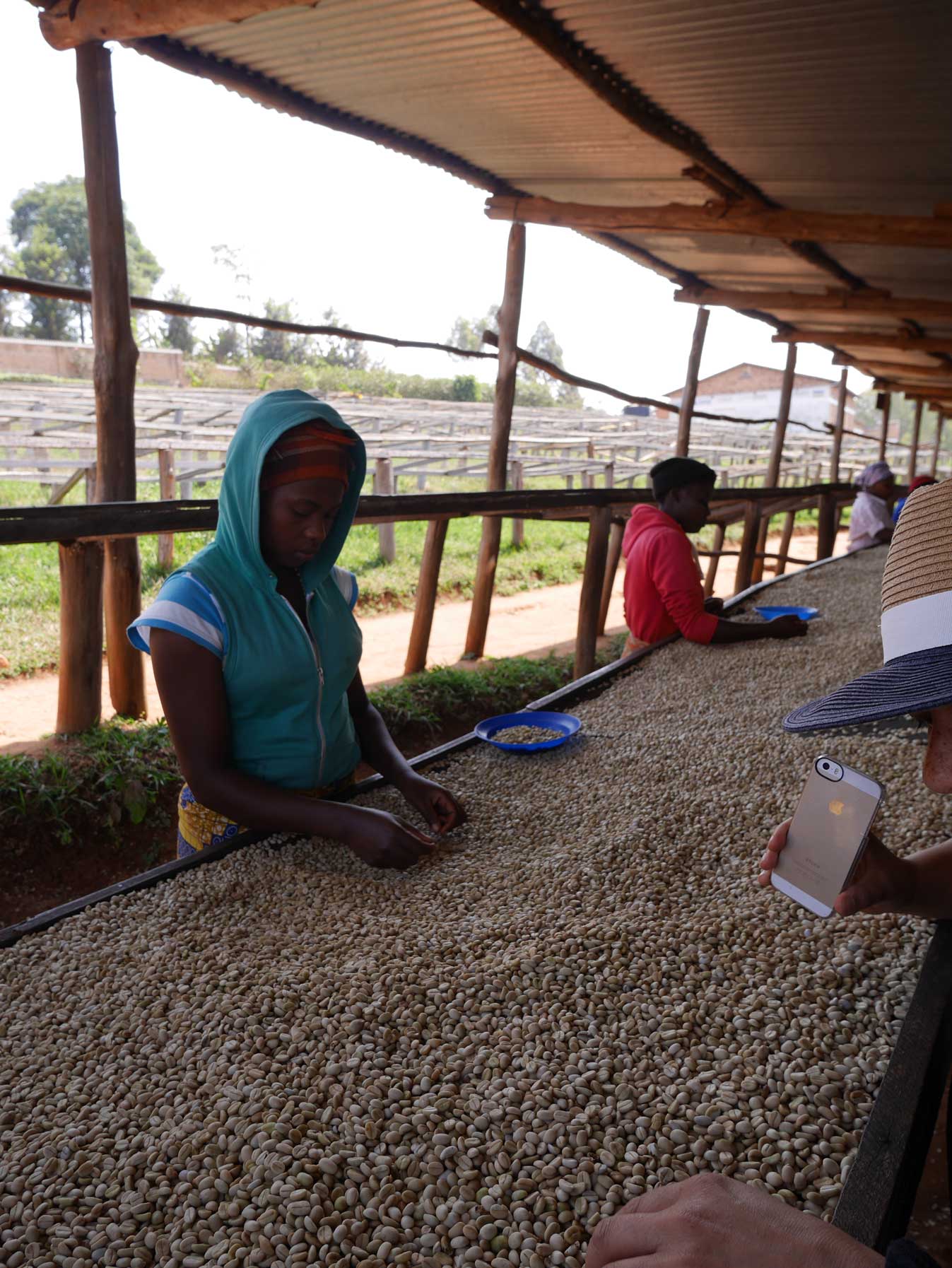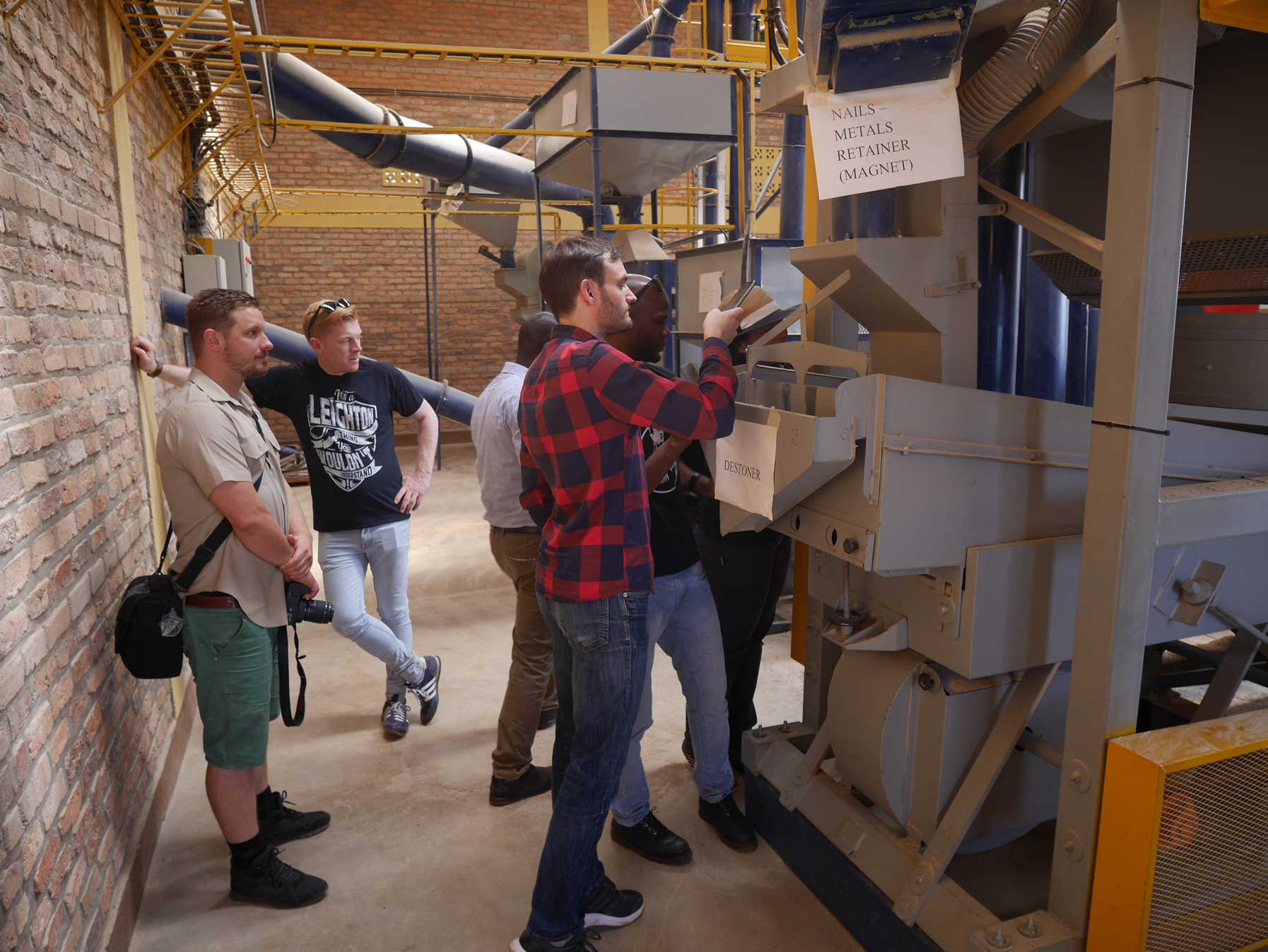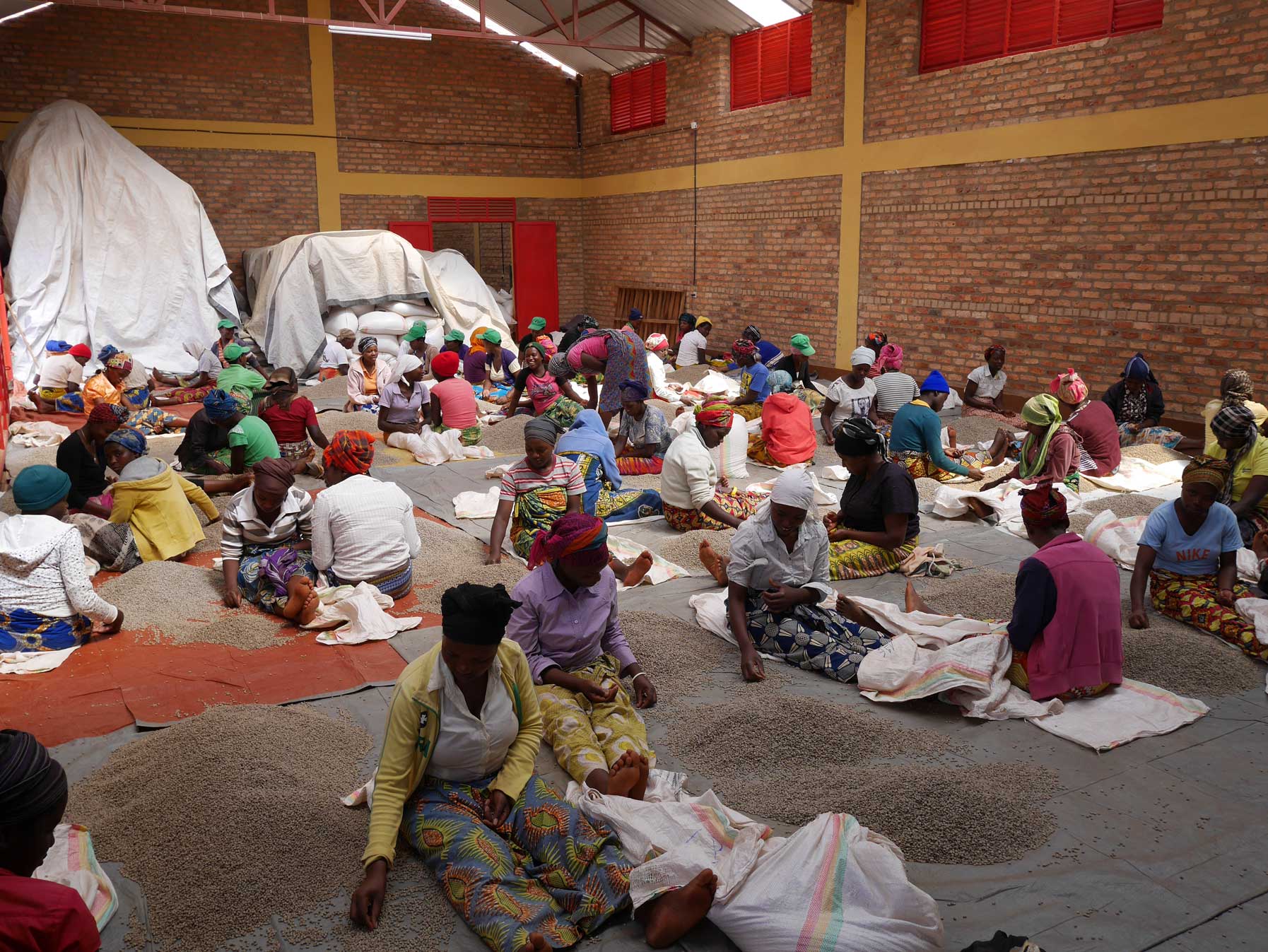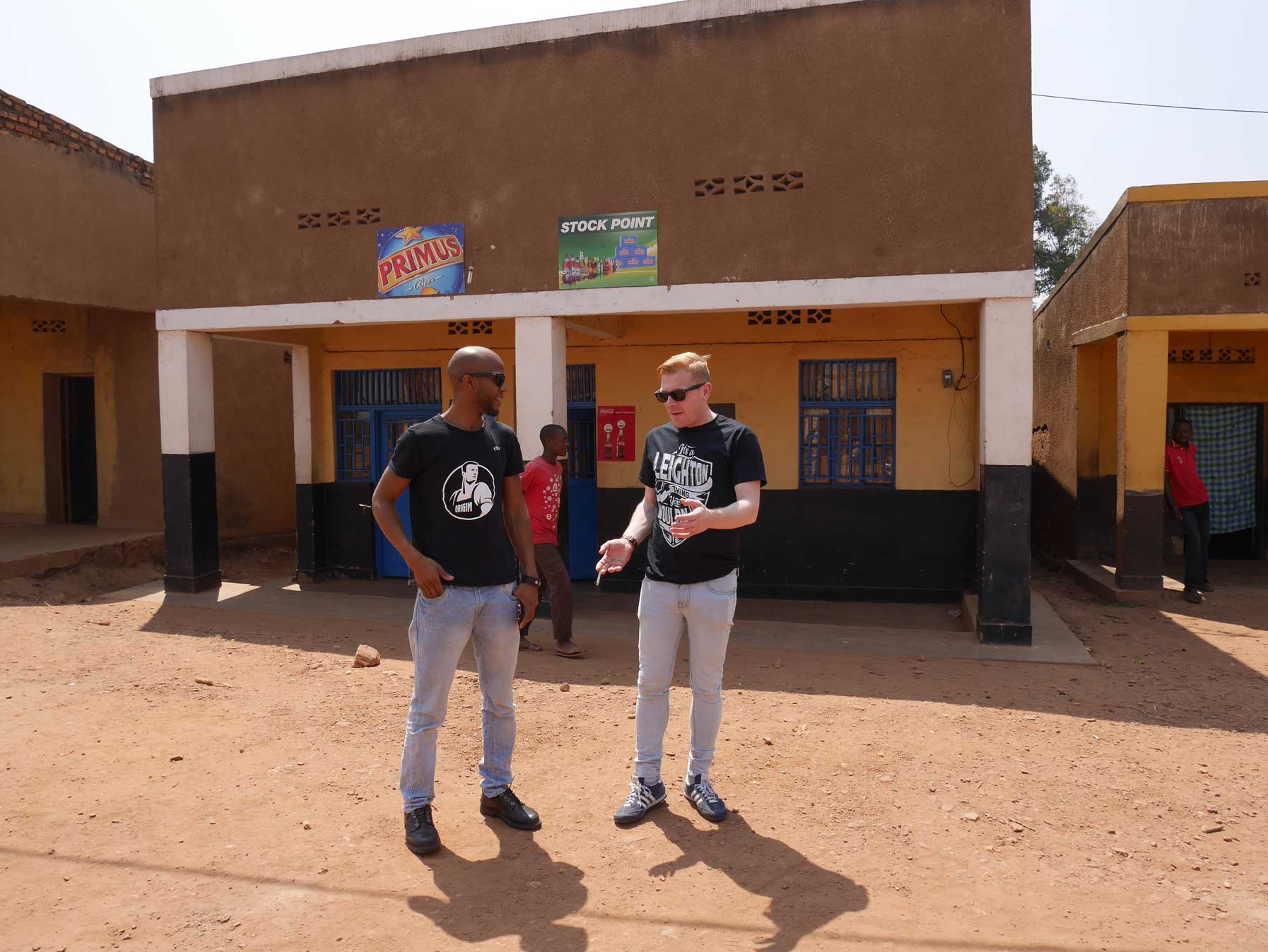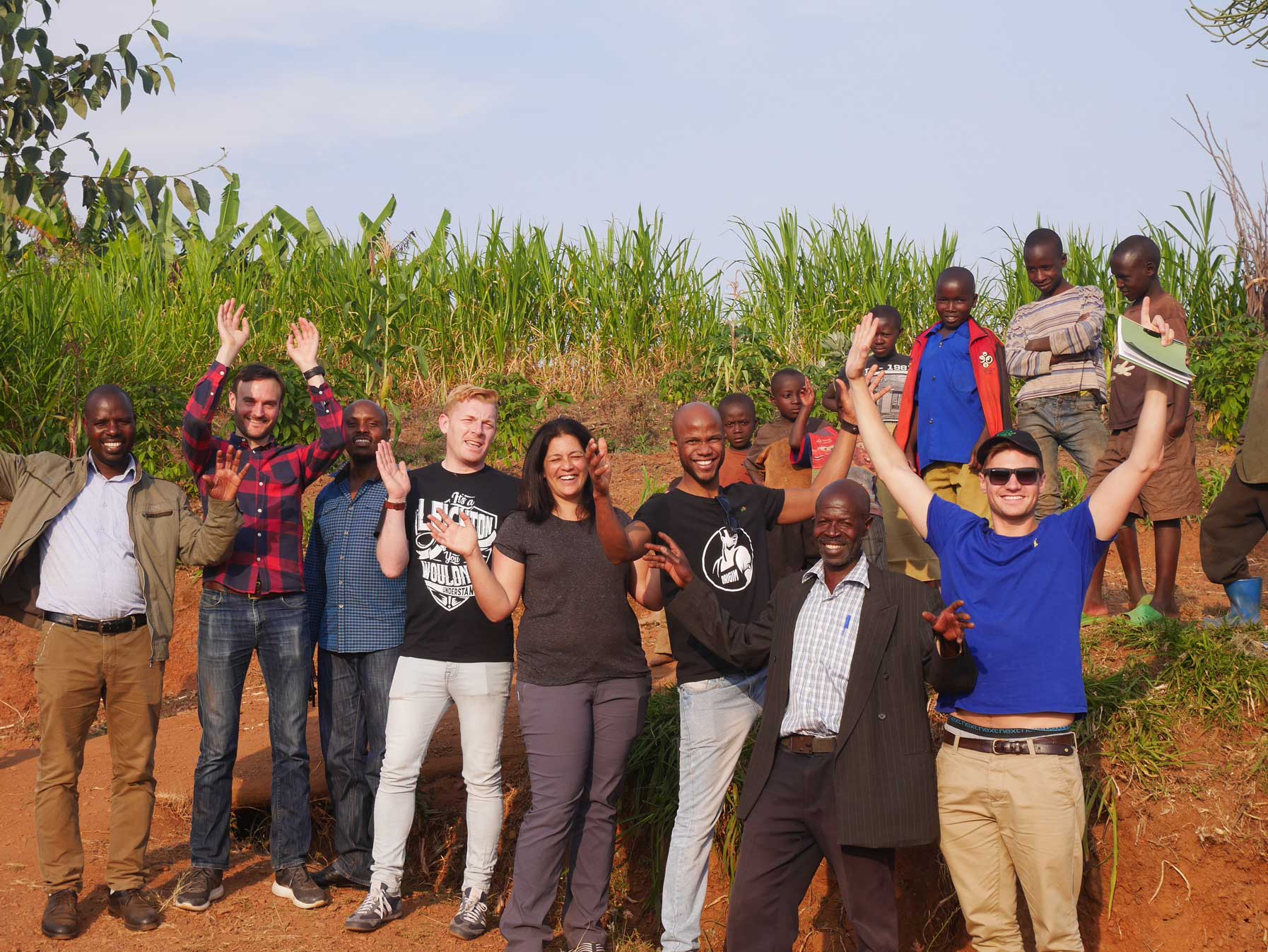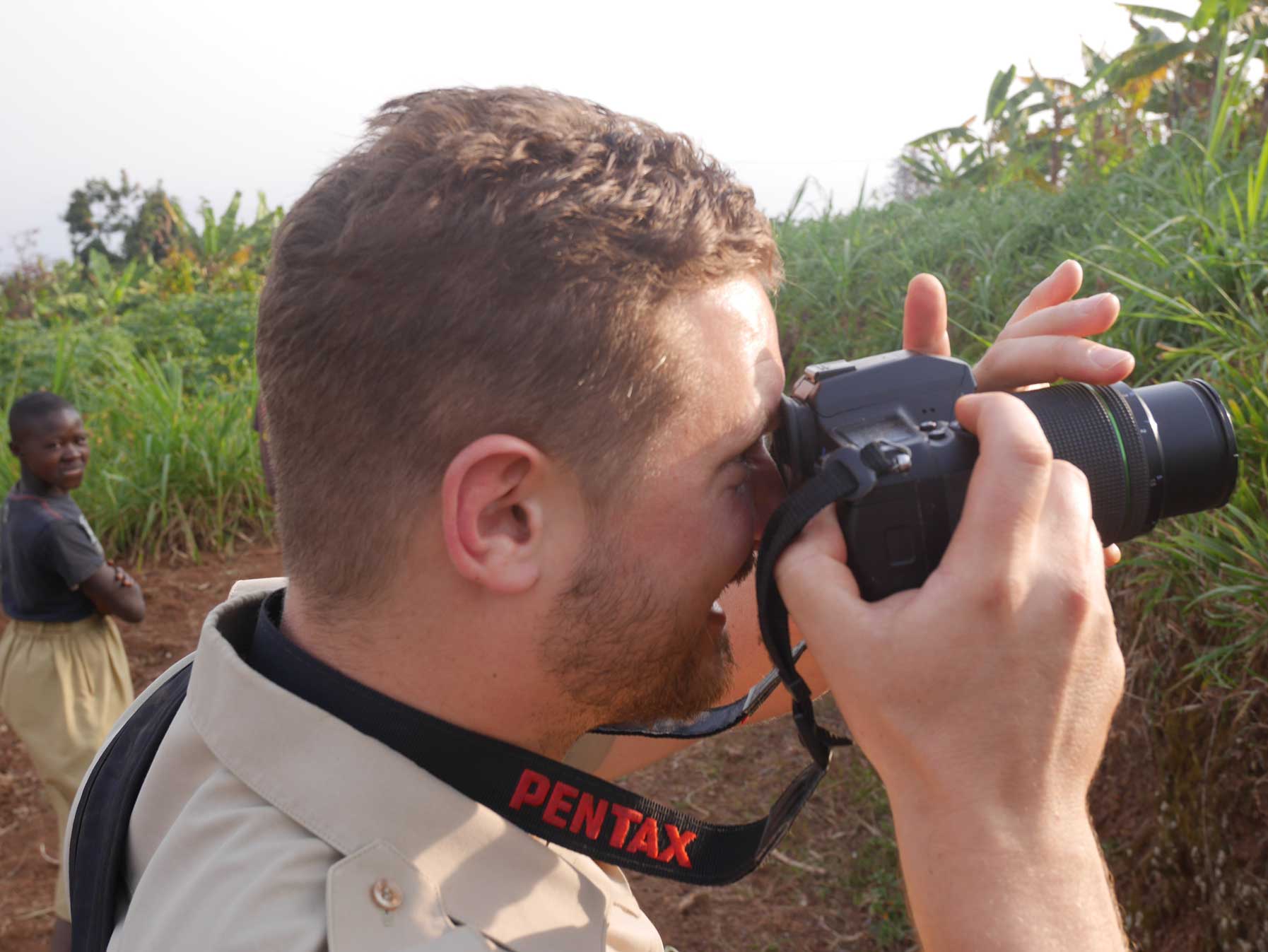Rwanda to the World: Celebrating 10 years of Rwandan Specialty Coffee
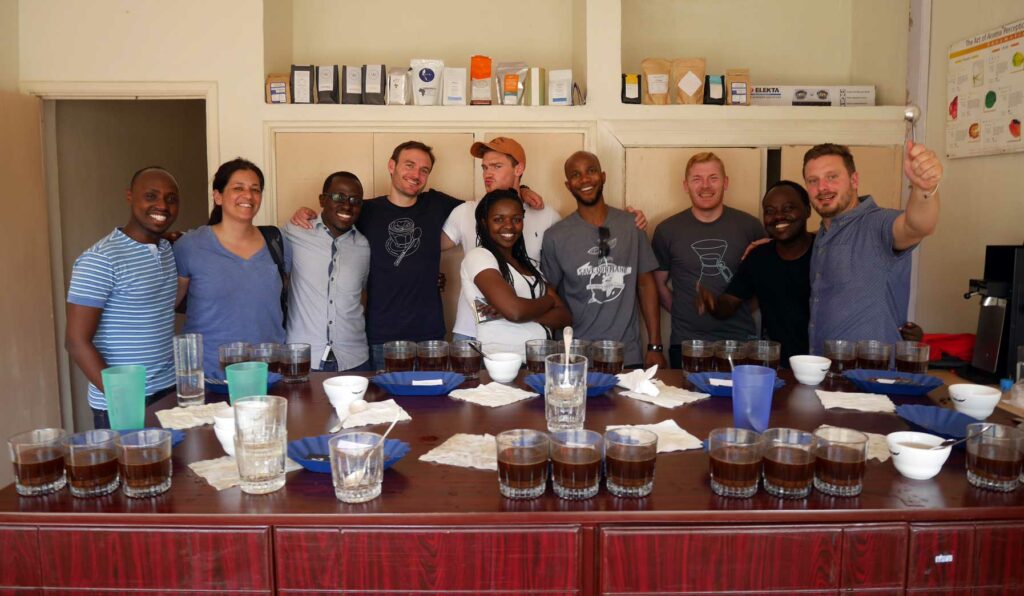
From July 9 – 17, 2016, Mercanta was honoured to be invited to Rwanda by our good friends, RWASHOSCCO, to help them celebrate 10 years of producing specialty coffee. Mercanta’s Raphael Prime and Jamie Marler were joined by our guests, Andrew Tolley of Taylor St., Diana Palmer of Red Roaster, Jorge Alberto from Origin South Africa and Steve Leighton of Has Bean.
It was a great pleasure to be able to share our love of this spectacular and unique coffee origin with our friends from the around the world. Mercanta regularly visits the country and has displayed a strong commitment to Rwandan coffee from nearly the beginning of speciality coffee in the country. We have been unwavering friends to the Rwandan coffee sector over the past decade, and in return Rwanda has continued to give to us some of our favourite coffees every year.
We are delighted to be able to share this account of Rwandan coffee over the last 10 years and our love for this special place and the people who have worked so hard to make Rwandan coffee great.
Rwanda to the World:
Celebrating 10 Years of Specialty Coffee in Rwanda
By Raphael Prime, Coffee Hunter
Mercanta gives a thousand thanks to the land of a thousand hills for their beautifully crafted coffees and our 10 years of strong coffee partnership and friendship.
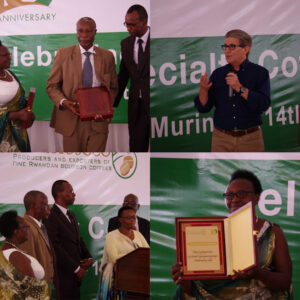
Various Scenes from RWASHOSCCO’s 10th Birthday
2016 was a year of celebration for both RWASHOSCCO[i] and MERCANTA. After receiving coffee pioneers Angelique[ii], Laetitia[iii] and Furaha[iv] in Dublin at our 20th anniversary, it was Mercanta’s turn to take part as a guest-of-honour at RWASHOSCCO’s 10th anniversary in Kigali, Rwanda. Both companies share a commitment to quality coffee, and our mutual celebrations should be understood as a celebration of quality in coffee as a means of achieving better quality of life for rural coffee communities. All while enjoying some of the best coffee in the world.2016: RWASOSCCO’s 10th Anniversary in Kigali
The exemplary success story of Rwandan Coffee is now quite well-known. 22 years ago the production of Rwandan coffee was close to nil. 22 years later, Rwanda produces over a quarter million bags and is one of the most renowned suppliers of specialty coffee around the world. The achievement is stupendous and a testament not only to the country’s natural resources and ideal growing conditions but also the passion and the heart of the Rwandan people.
Mercanta first became involved with Rwanda in 2006, when Stephen Hurst visited the country with friends from Origin Coffee South Africa and Monmouth Coffee Roasters in pursuit of new sources of outstanding coffees. At the time, the country was struggling to rejuvenate a battered coffee industry and trying to break into new markets for quality as a means of livelihood for rural farmers.
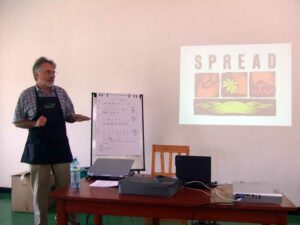 The transformational PEARL project and its impacts
The transformational PEARL project and its impacts
Rwanda of 2006 was very different to the safe, organized, welcoming country that we know today. The impacts of 1994’s genocide were still apparent, and this small nation was in much need of reconstruction and economic growth. Most importantly, the country needed AND was committed to seeking a new direction and a brighter future.
During this first trip, Stephen Hurst was introduced by Tim Schilling[v] to the SPREAD project (a successor of the transformative PEARL[vi] project). PEARL’s (and subsequently SPREAD’s) goal was to generate more revenue for the country’s development and to make sure that a good portion of this revenue went to the producers themselves. Considering the lack of infrastructure and the country’s recent historical struggles, the challenge seemed impossible at the time. In order for it to succeed, the programme needed to identify a sector that was a large employer in rural areas, one that had the potential to sustain a remunerative agricultural crop and one that had the capacity to rebuild communities. COFFEE was an ideal fit.
PEARL’s first intervention was a specialty coffee pilot project that involved the Maraba coffee washing station in Butare, Southern region – at the time one of the poorest regions of Rwanda and one that had suffered heavily during the genocide. Working closely with local Rwandan institutions[vii], the programme promoted good agricultural and processing practices, provided extensive training and helped with consulting – all with the goal of bringing the washing station’s coffee up to specialty grade.
This translated into major changes to the way coffee was harvested and processed. The programme focused on selective cherry picking, stringent cherry reception and re-sorting practices, quality and density separation through flotation, and strict attention to sorting by weight, density and visual appearance at all stages of processing – from pulping to dry milling.
As a result, in the first year of the programme, Maraba managed to produce one container of specialty coffee grade sold onto the international market at a differentiated price, making Rwandan coffee history and paving the way for the 245 washing stations operating in Rwanda today.
This transformational project helped to move the Rwandan coffee sector from its historical emphasis on quantity to one of quality – and so opened up Rwanda to the far higher-earning specialty coffee market. The impact of PEARL/SPREAD has been invaluable and is hard to overstate. One of the key reasons for the programmes’ success was their capacity to intelligently channel international aid money into a driving force that could generate better income for small holders in the short- and long-term while also giving them full ownership over their work, keeping them ‘on board’ for the future.
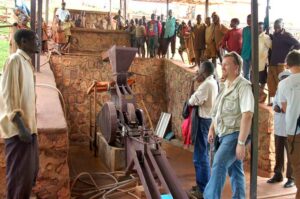 Mercanta’s commitment to Rwanda
Mercanta’s commitment to Rwanda
Mercanta’s Stephen Hurst identified Rwanda’s potential early on. Looking beyond the stigma of ‘’war zone’’ and all the negative imagery and horrors surrounding the genocide – not to mention the country’s previous reputation for poor coffee quality (including the infamous potato defect[viii]) – Stephen decided to lend his value and expertise as an importer to the country’s revival. Our first visit to Rwanda (the same visit during which Tim Schilling introduced us to the Maraba project) established relationships that 10 years later continue to bear fruit. In 2006 we purchased several lots from RWASHOSCCO, and today, our partnership with RWASHOSCCO is closer and stronger than ever. We participated in the proto-Cup-of-Excellence ‘Golden Cup’ competition in 2007 and the very first Rwanda Cup of Excellence in the following year, and we still continue to buy exceptional lots both through the COE auction and direct from our Rwandan partners. Our friendships are durable and the coffees are extraordinary.
Direct trading within Rwanda (and our other coffee origins) really is best described as a direct and long-term conversation with our coffee partners. This conversation enables us to align in terms of price and quality. Above all, the direct conversation gives us the opportunity to collaborate closely with producers in order to achieve the quality we want while also better understanding the challenges and costs incurred in producing that quality, above all making sure our price expectations are able to support continued quality production. Once we achieve quality / price alignment and have managed to promote the coffees within our markets, we repeat the business year after year, further developing the relationships towards increased quality, innovations and transparency in order to progress equitably and sustainably within our small industry of specialty coffee.
In Rwanda, as in almost all the origins where we source, Mercanta sends our Coffee Hunters once or twice a year to further develop, nourish and reinforce our relationship: in essence, to continue our conversation! Much of this is achieved around the cupping table. We usually visit towards the very end of the season so that we can cup an overview of the harvest. In the case of RWASHOSCCO, due to our strong relationship and mutual professional respect and engagement, we have the opportunity to rely on the expertise of our dear friends and some of the best cuppers in Rwanda (special shout out here to RWASHOSCCO staff Eugenie, Laetitia, Uzziel and Emerita [ix]), who pre-select between 100 to 200 samples for us to cup based on their knowledge of our requirements and the lots we have developed over the years. We blind cup our way through one table after the other, knowing nothing about price, washing station, etc.
After each cupping, together we complete an in-depth debriefing and openly share our scores and feedback in order to identify and select the top lots representing the best of harvest. We have engaged in this conversation for 10 years, now. These 10 years have enabled us to calibrate with our friends at RWASHOSCCO, to identify farming / processing defects and how resolve them for the following year and to most importantly develop the Rwandan flavour profiles we like so much and want to see year after year.
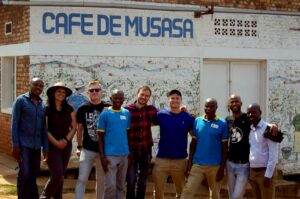
During these trips we also extend the conversation. We visit the coops and producers to better understand improvements and challenges – and sometimes just to share stories around some nice homemade, traditional dishes. We often bring our clients on these trips (such as our most recent one) so that they can join in on the conversation and so that they can see for their own eyes where the premium they pay for premium quality goes. We like to think of these visits both as little ‘audits’ of us as importers and as an opportunity for our clients to form their own relationship with the producers from whom they buy.
As a pioneer importer of specialty coffee, Mercanta has always set out to discover outstanding coffees in unexpected places, which always includes taking many risks in bringing these coffees to
market. While we have been bringing Rwandan coffee to our clients for 10 years, many roasters are still not willing to invest in the coffee because of the potato defect. However, by promoting these coffees with energy and commitment and due to a great deal of hard work by the the coops, which has dramatically reduced potato defect, roasters are starting to get behind Rwandan coffee in a big way.
Rwanda is a prime example of what close collaboration and relationship building between coops / exporters / importers / roasters can achieve. Due to the country’s small size, it is easy to see the positive impact that better farming practices committed trading relationships have had in Rwanda. This is a 10 year anniversary: it means that in just ten years time Rwanda has managed to produce some of the best coffees of the world, hosted 7 COEs and placed its coffees in the most renowned specialty coffee roaster around the world!
But even at 10 years, our relationship coffee is a baby with Rwandan! It is just the beginning. Imagine what you will be drinking in 10 years time. This is why Mercanta will not reduce our efforts in Rwanda, and as with so many things, we cannot just talk about, ‘’Oh this coffee is excellent’’, ‘’Oh, isn’t it wonderful’’,’’ Oh, have you tasted this exceptional cup?’’ We must put our money down, with genuine production plus sustainable prices, and we must buy a premium agricultural product and pay the fair price for the quality, sustainability and traceability that goes with it year after year.
Rwanda is a land of great human potential and great coffee potential. RWASHOSCCO’s and Mercanta’s anniversaries and history will be forever linked and will always call for the celebration of a clear vision and a great partnership for success. And above all, an ever-continuing conversation!
Rwanda to the world!
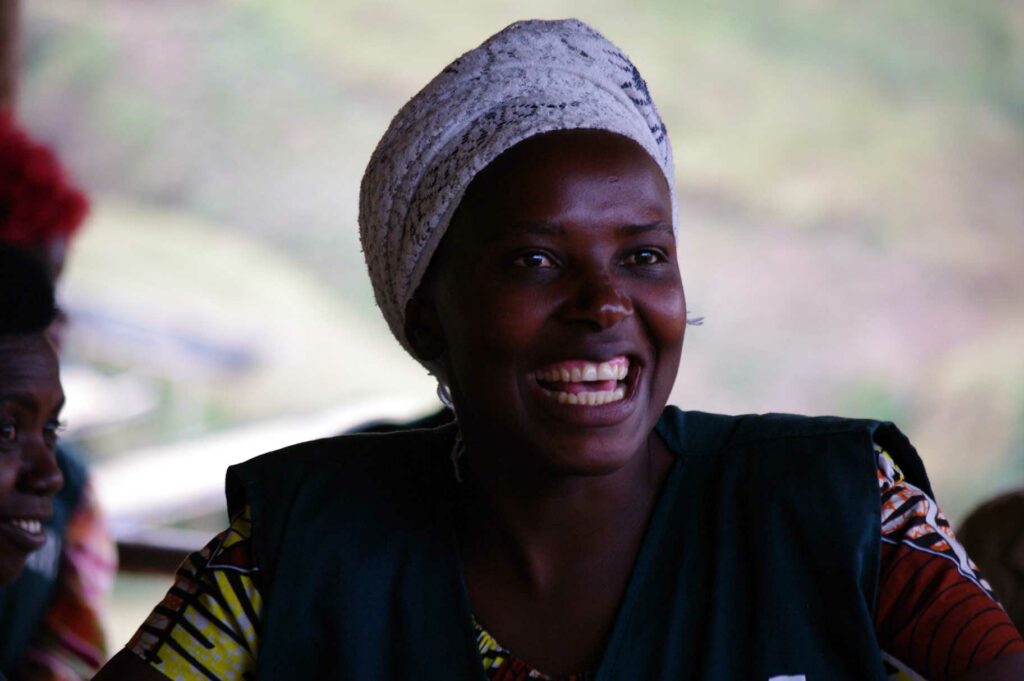
[i] The Rwanda small holder specialty coffee company (RWASHOSCCO Ltd) is a farmer-owned marketing, exporting and roasting company that also provides key services to small holder coffee cooperatives. All profits made from this company are distributed back to the farmers.
[ii] Angelique KAREKEZI – CEO of Rwashoscco
[iii] Laetitia KAYITESIRE – SAKE Farm in East province
[iv] Furaha UMWIZEYE – Kivubelt Farm
[v] Dr. Timothy Schilling – Director of the PEARL project
[vi] PEARL: (The Partnership for Enhancing Agriculture in Rwanda through Linkages) was a project to promote agricultural improvement in Rwanda funded by was funded by the United States Agency for International Development
[vii] National University of Rwanda, the Agricultural Research Institute of Rwanda, the Kigali Institute of Science, Technology and Management and the Rwandan National Coffee Board
[viii] Potato defect is a strong defect in a coffee bean that tastes like a raw potato and impacts cup quality heavily.
[ix] Quality managers and field support of RWASHOSCCO
